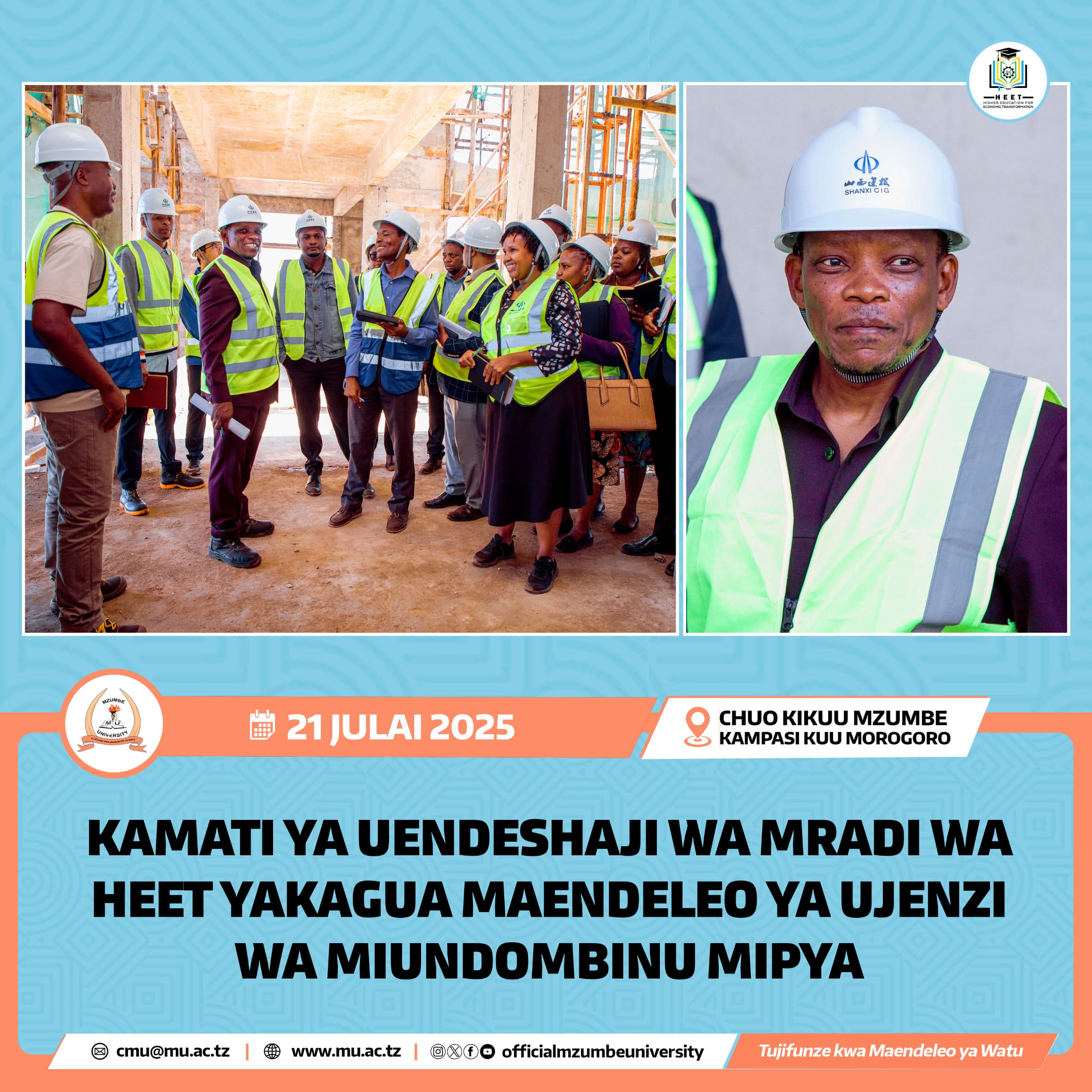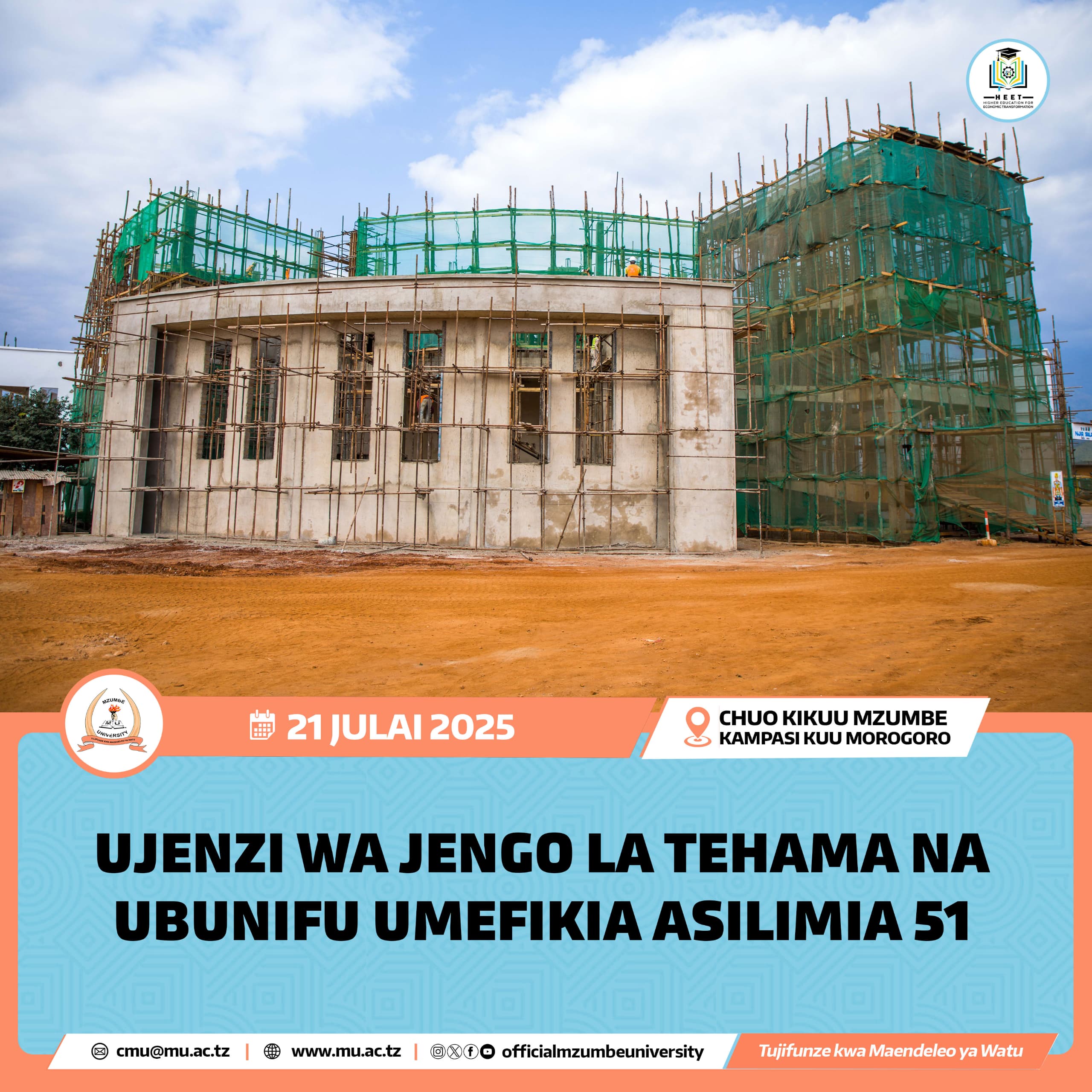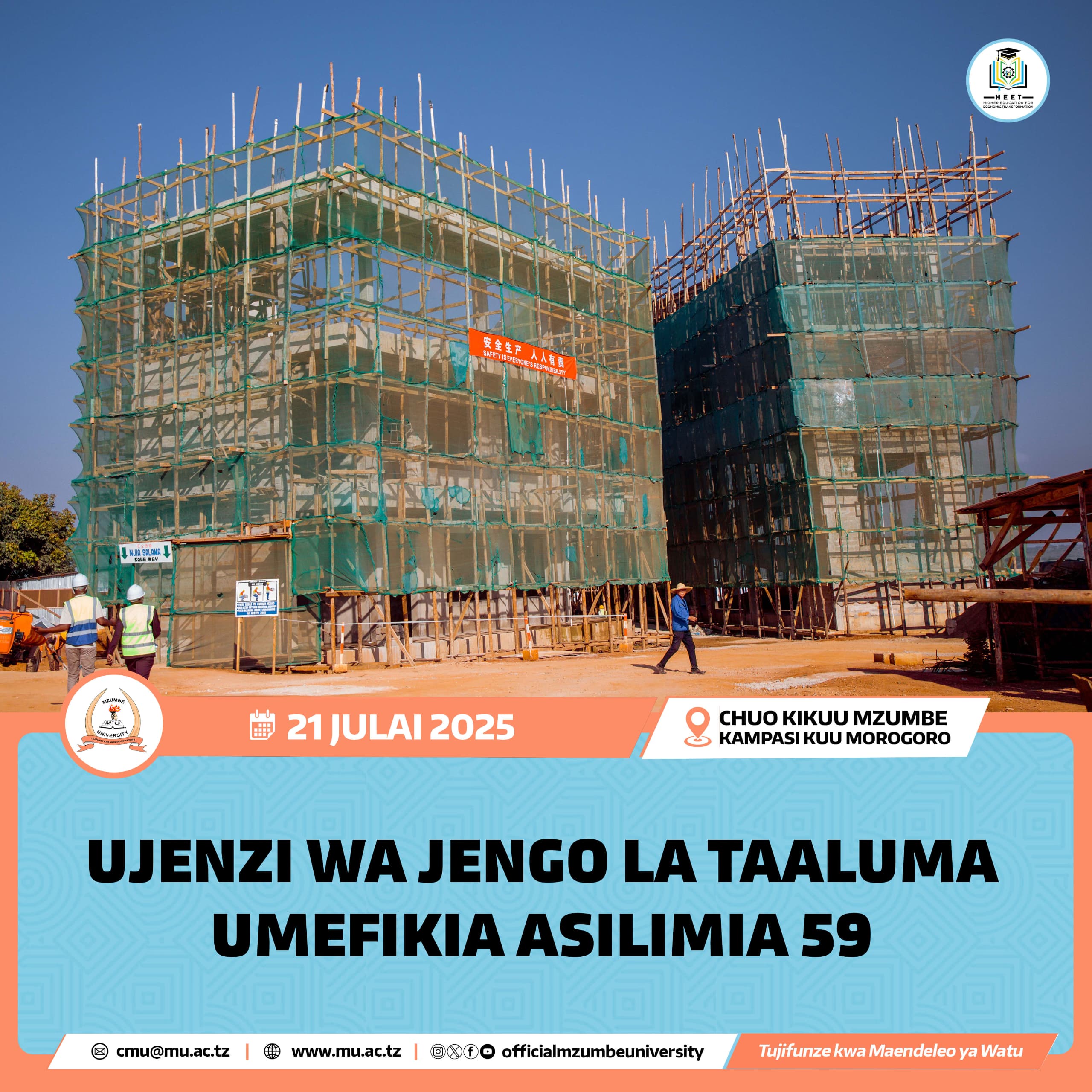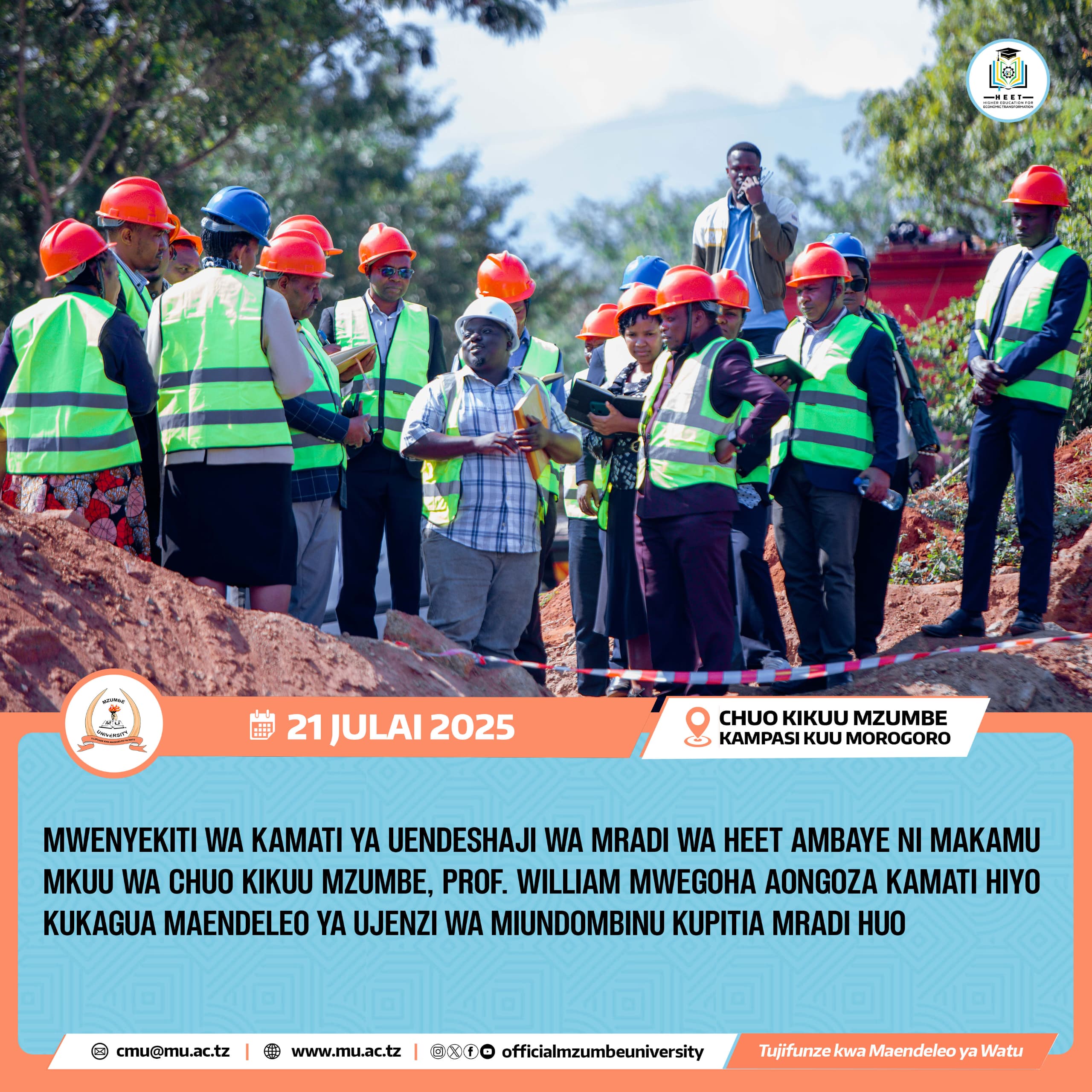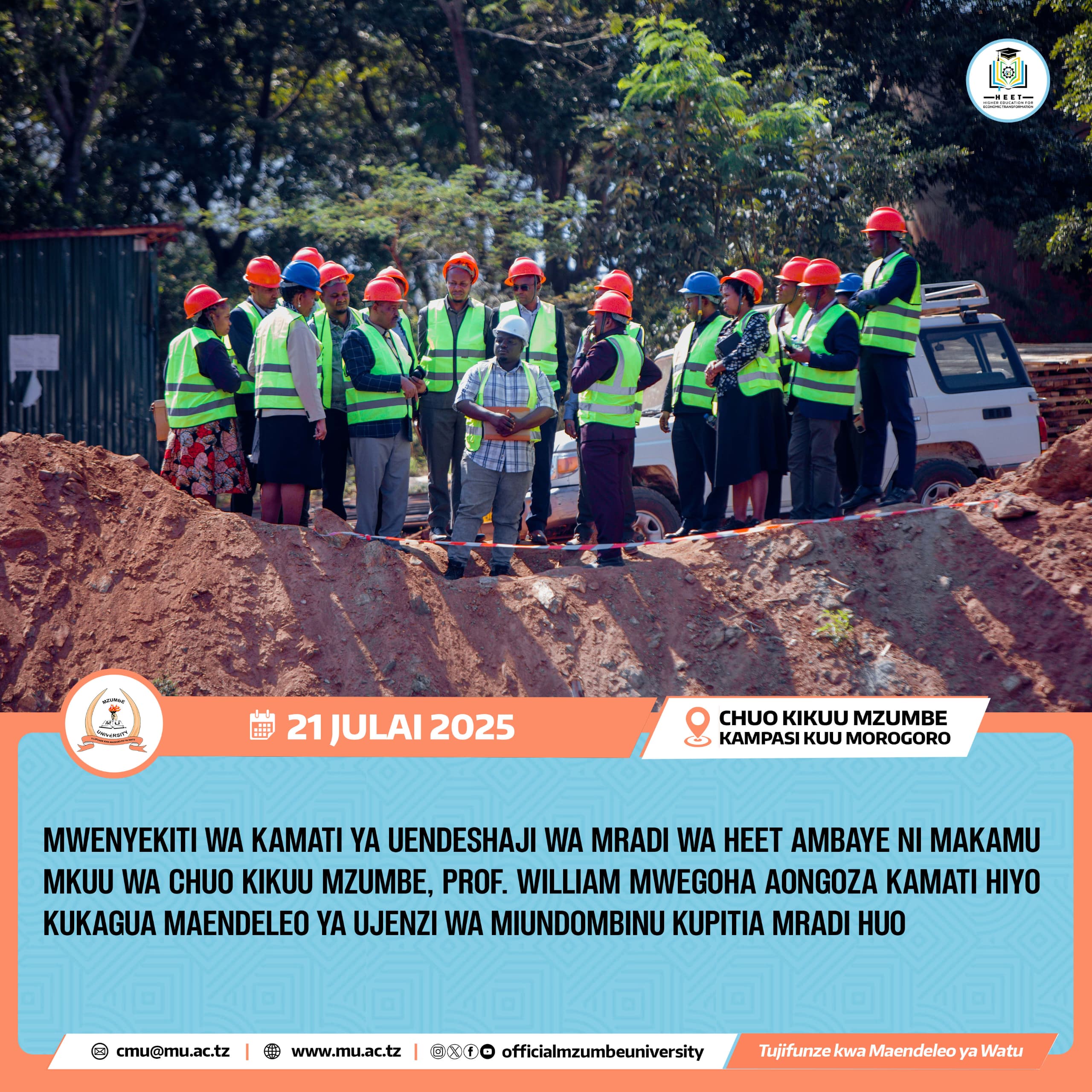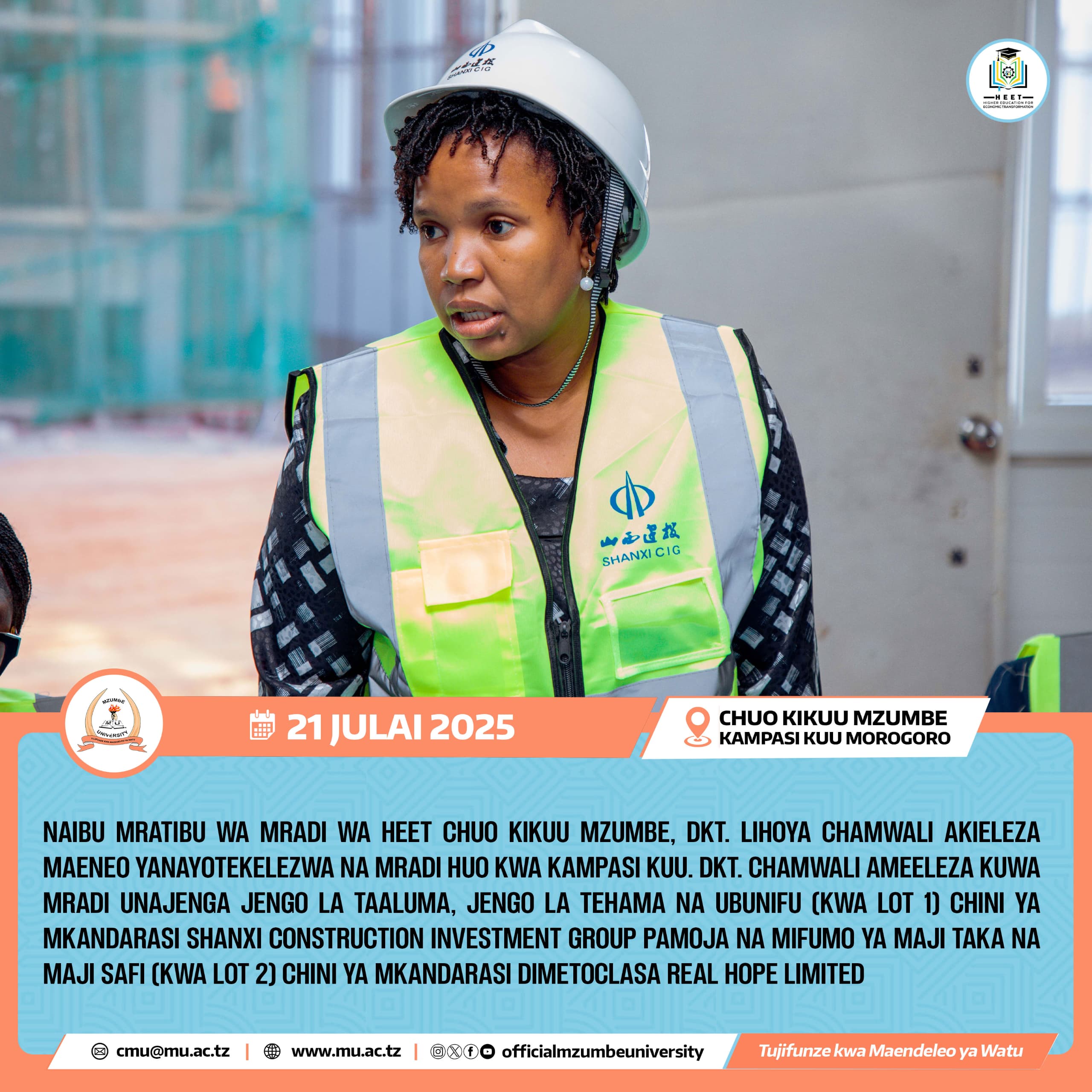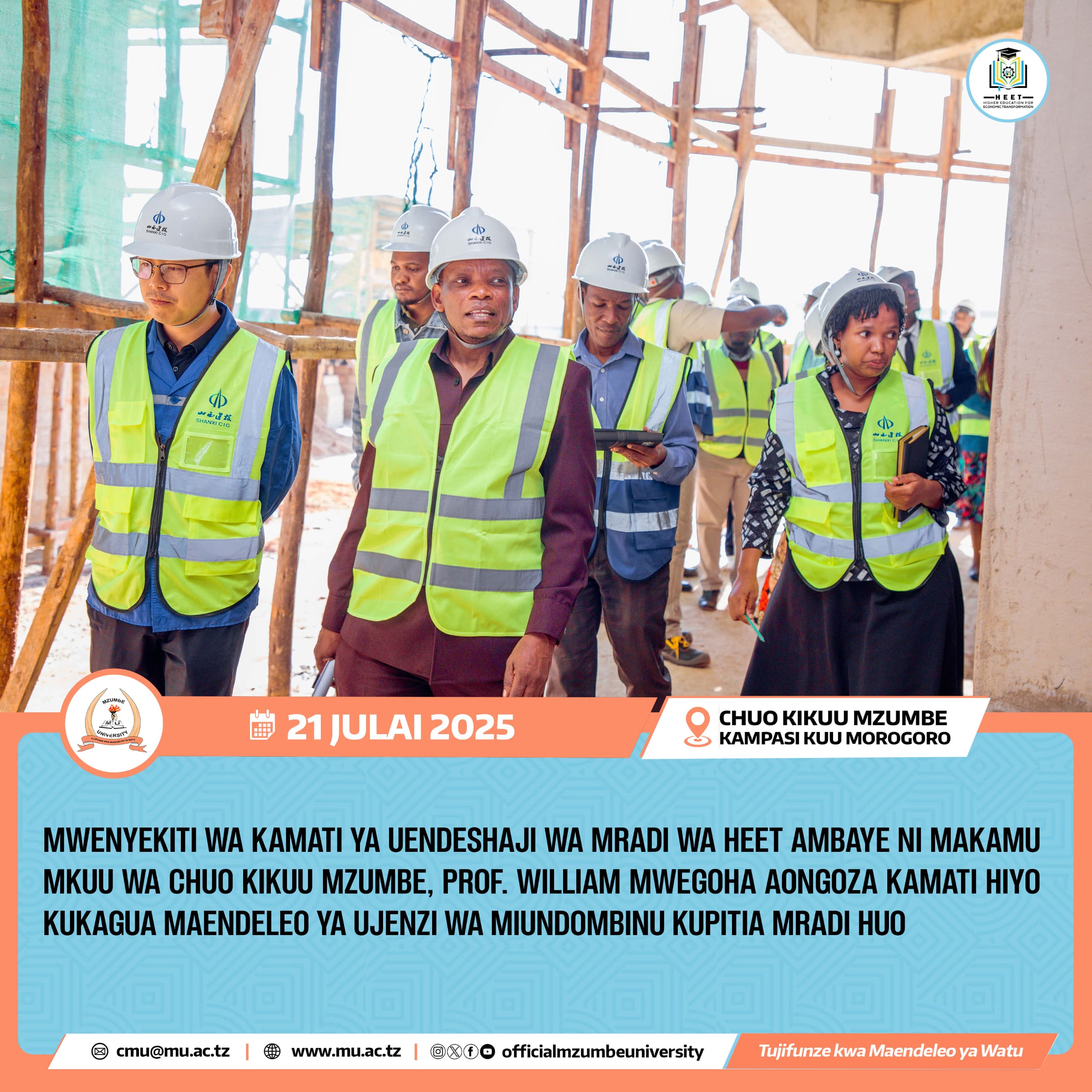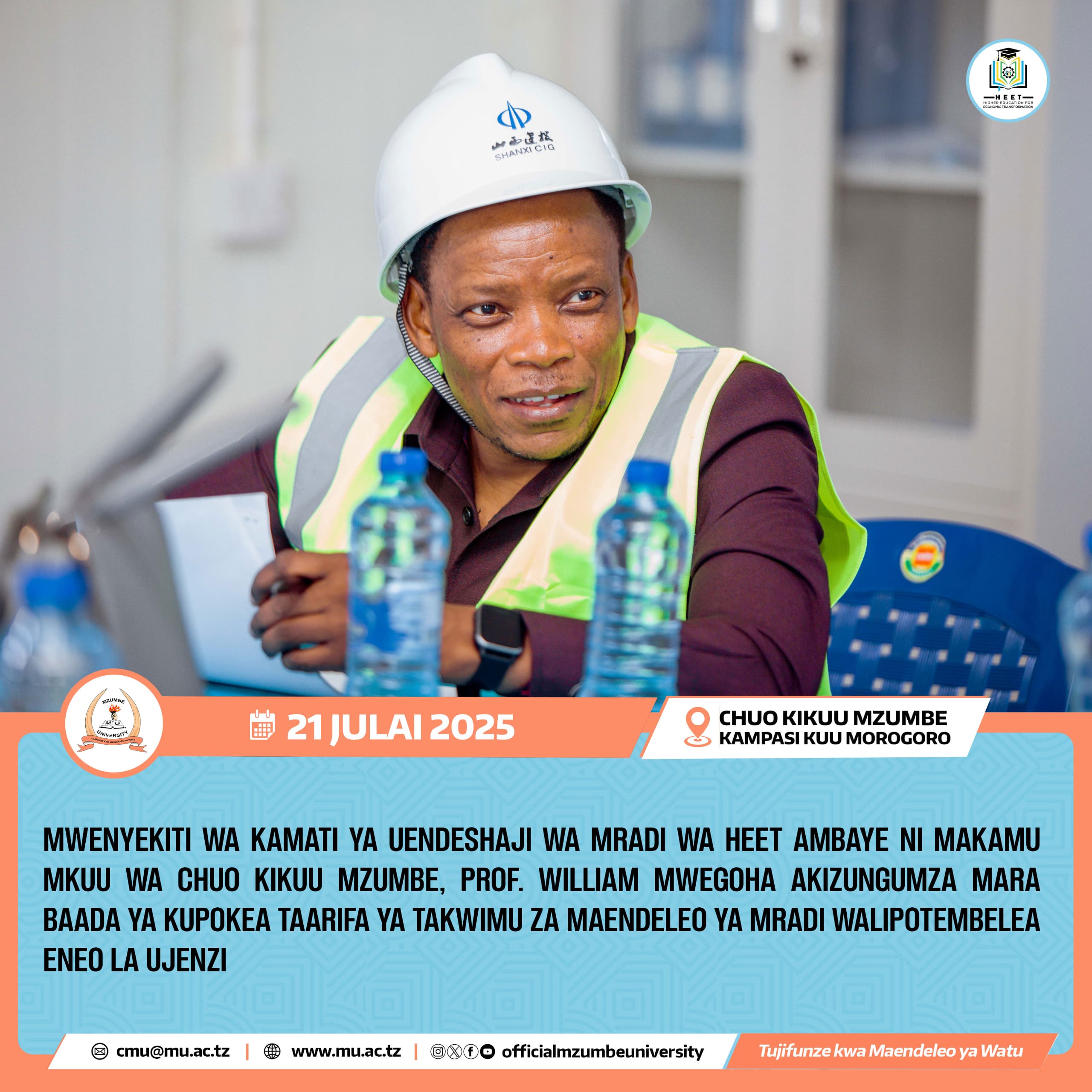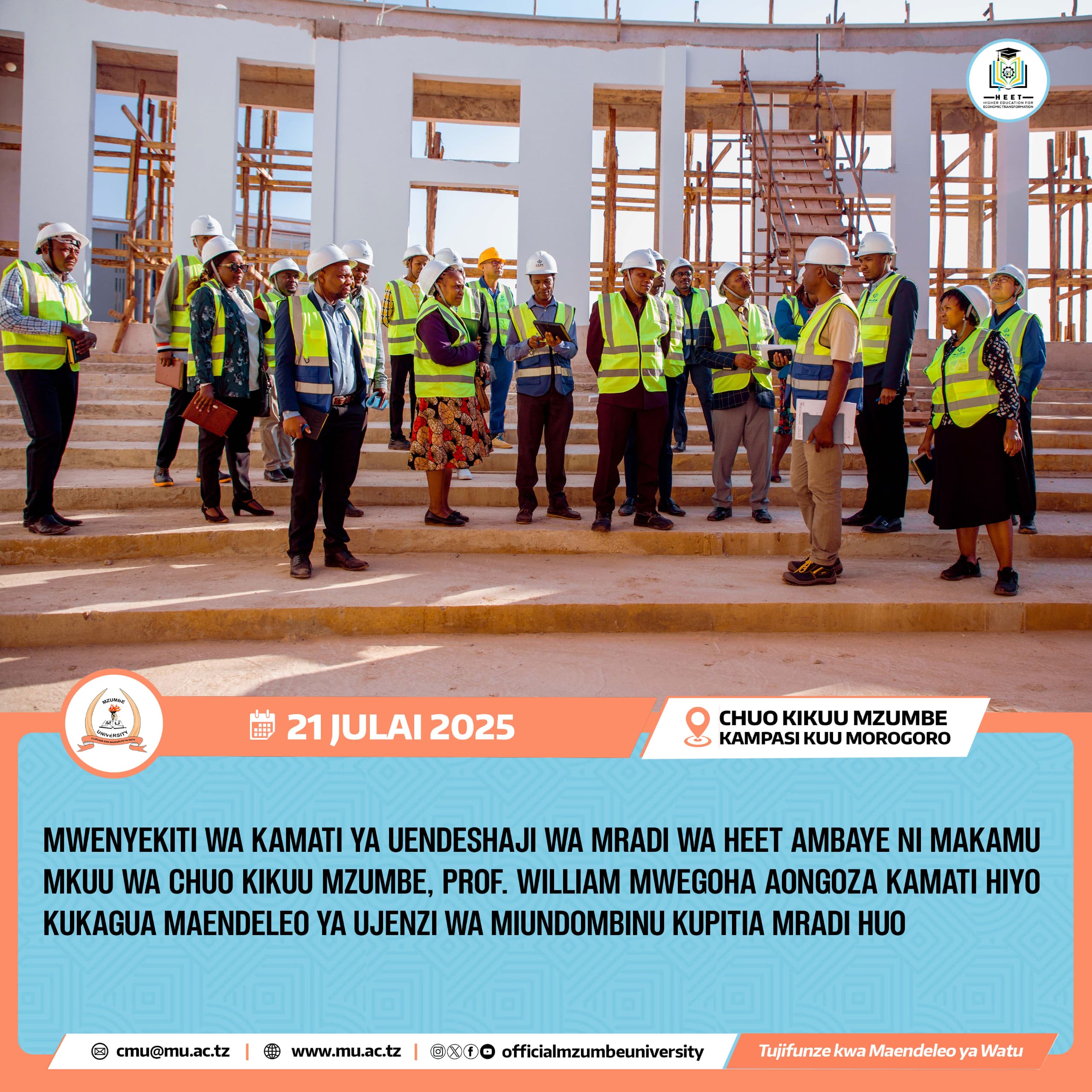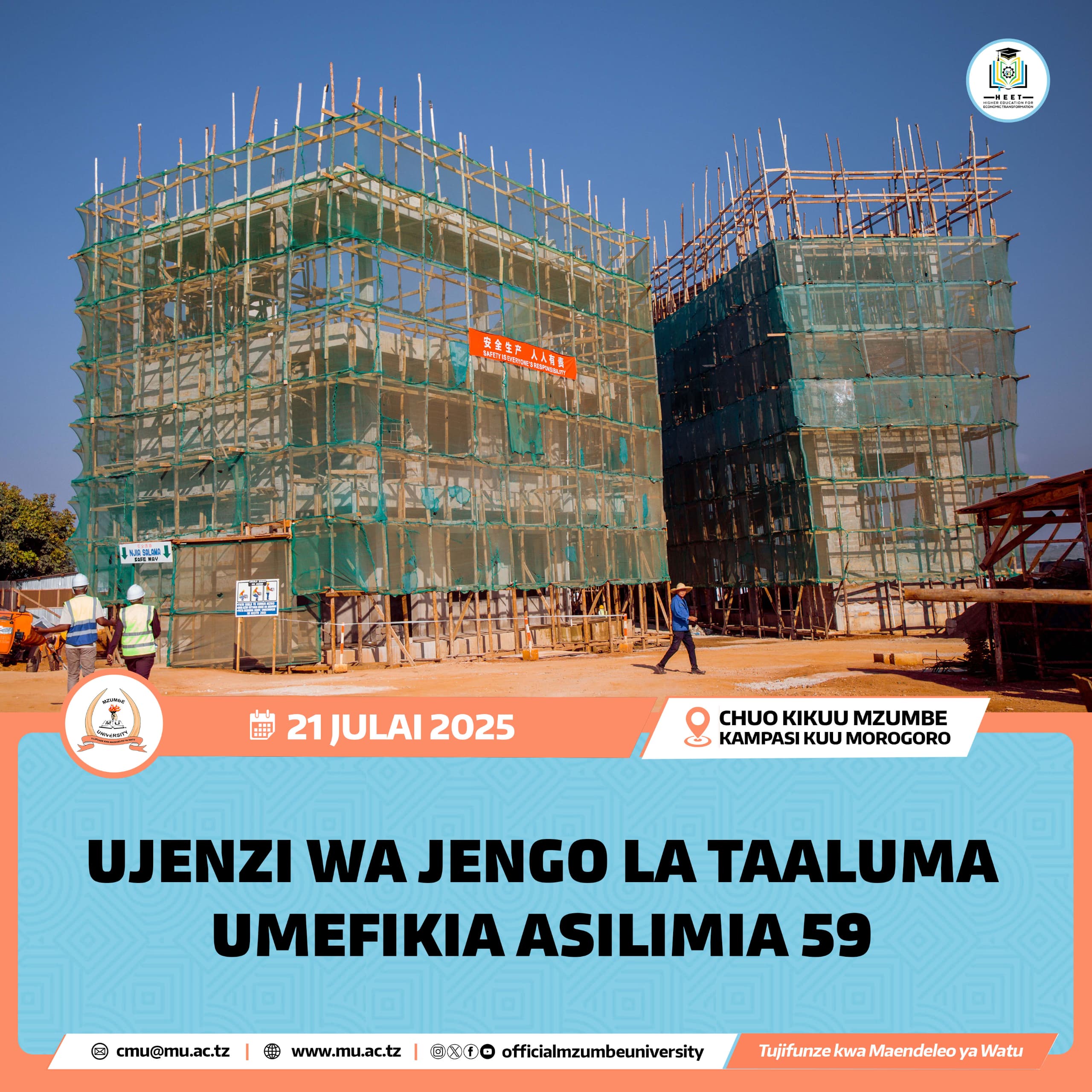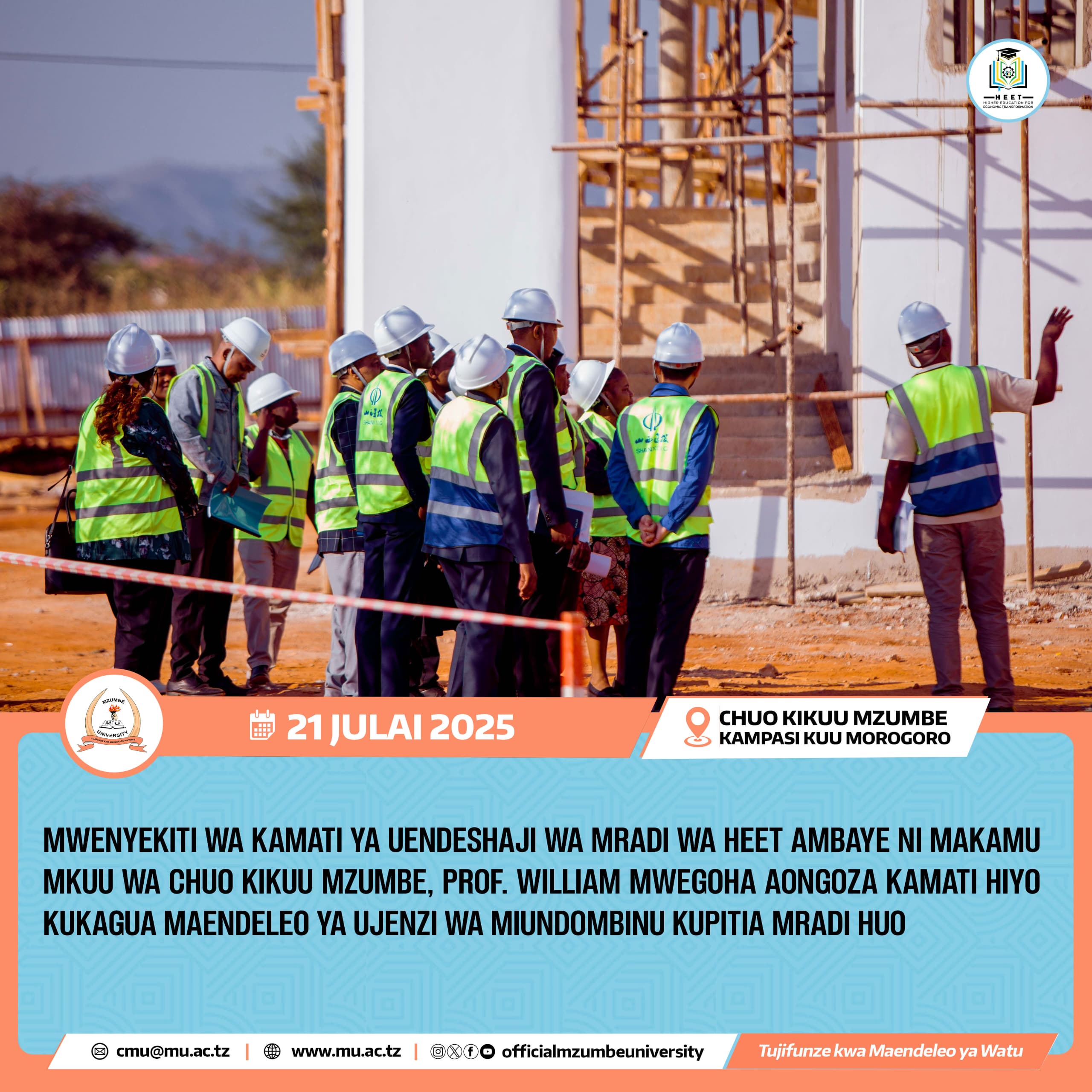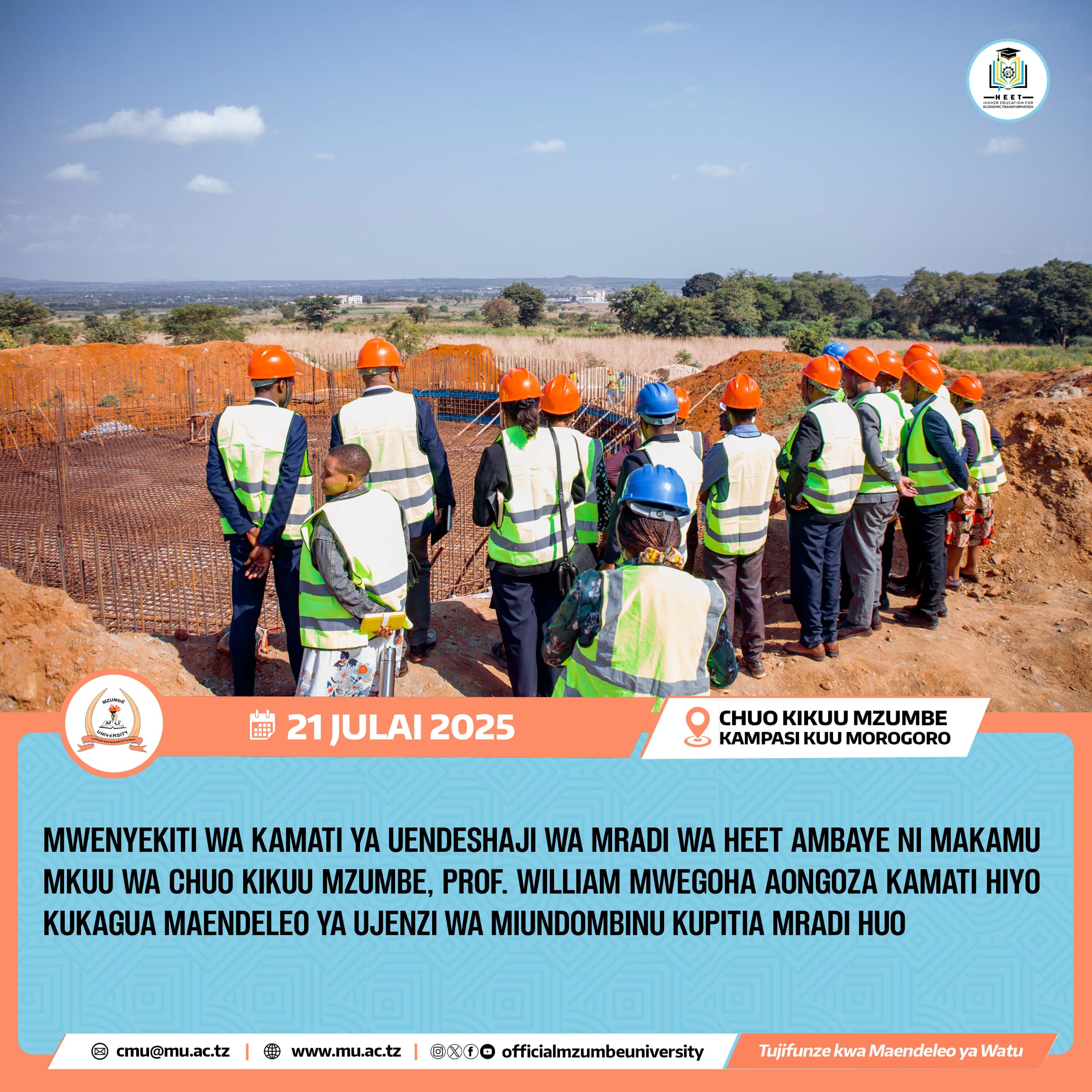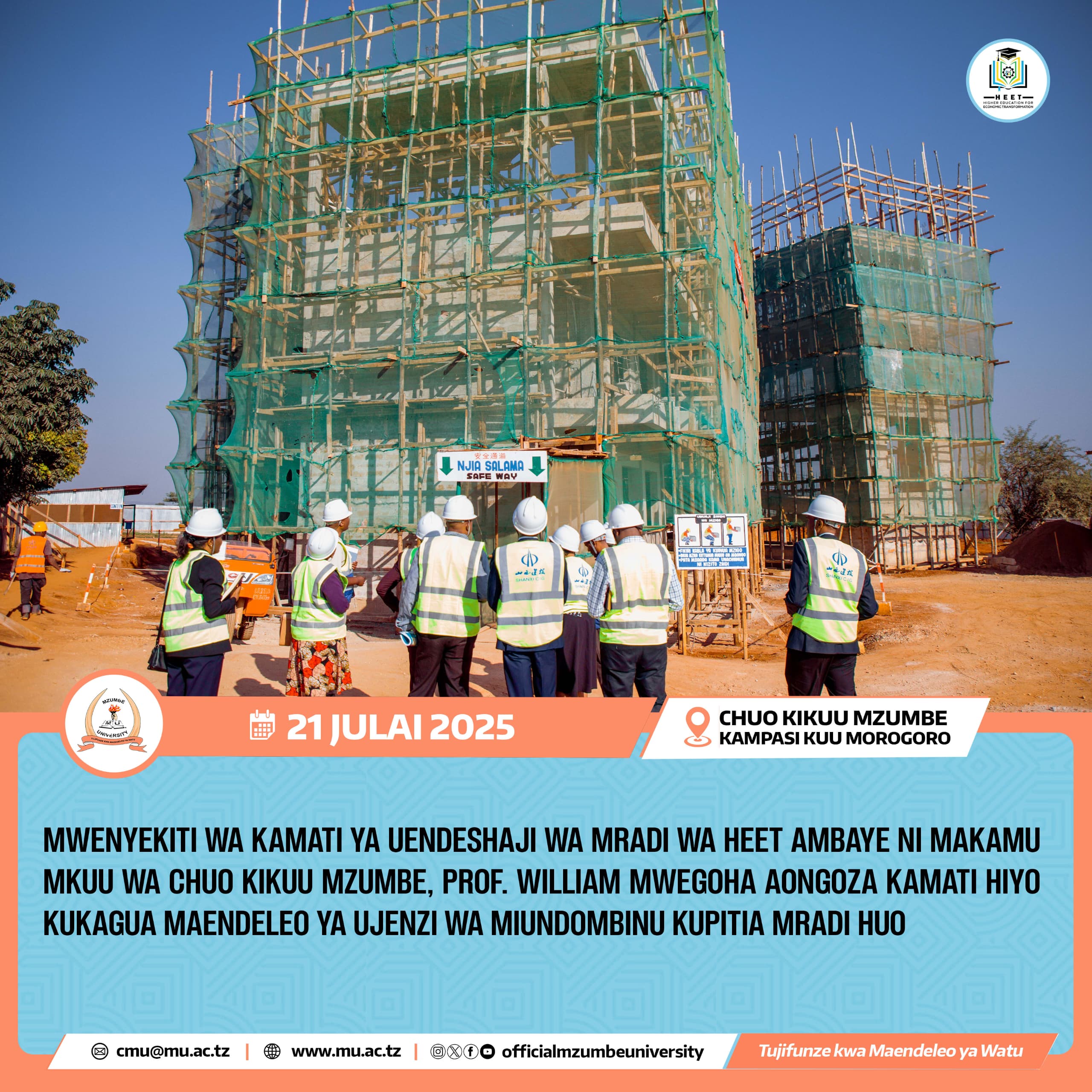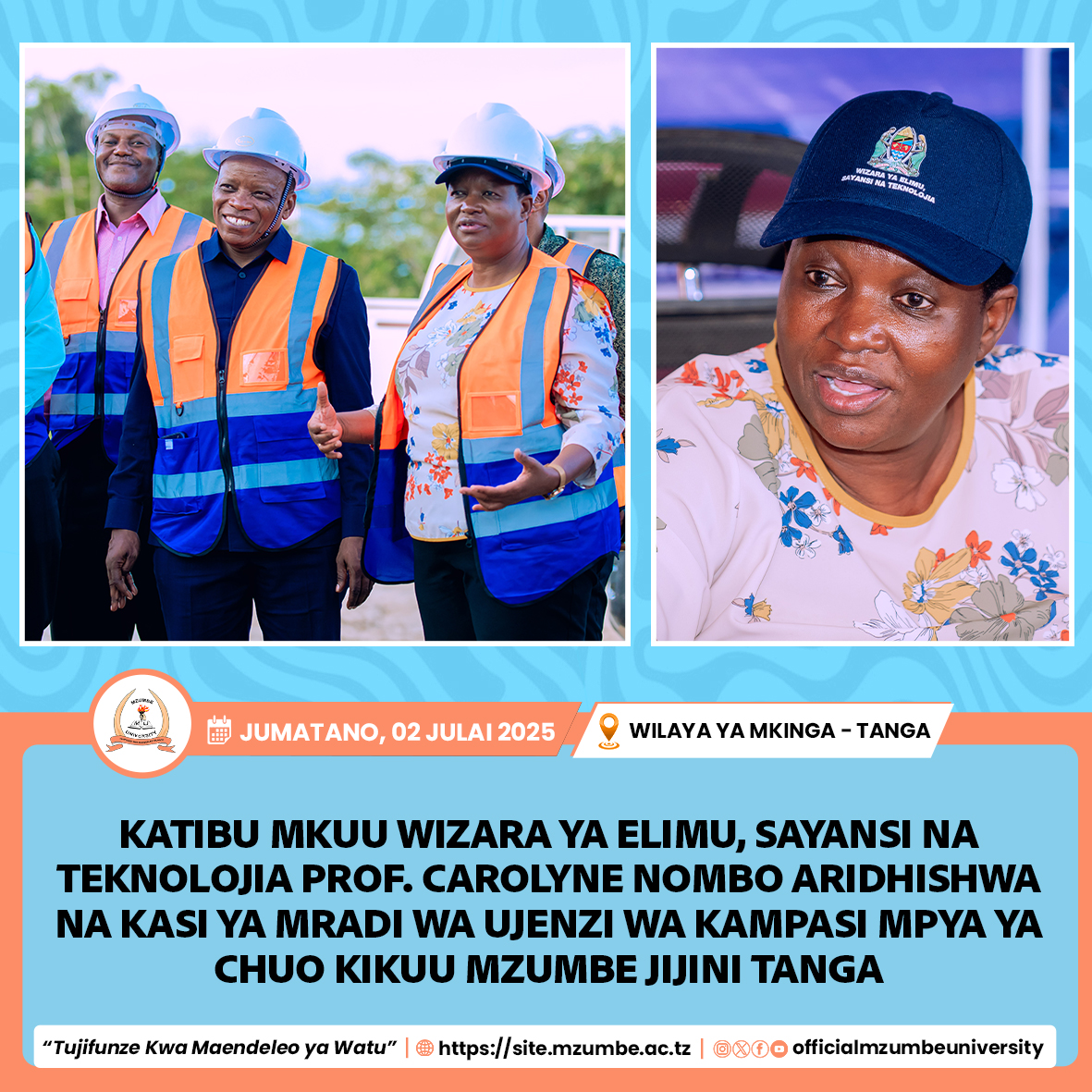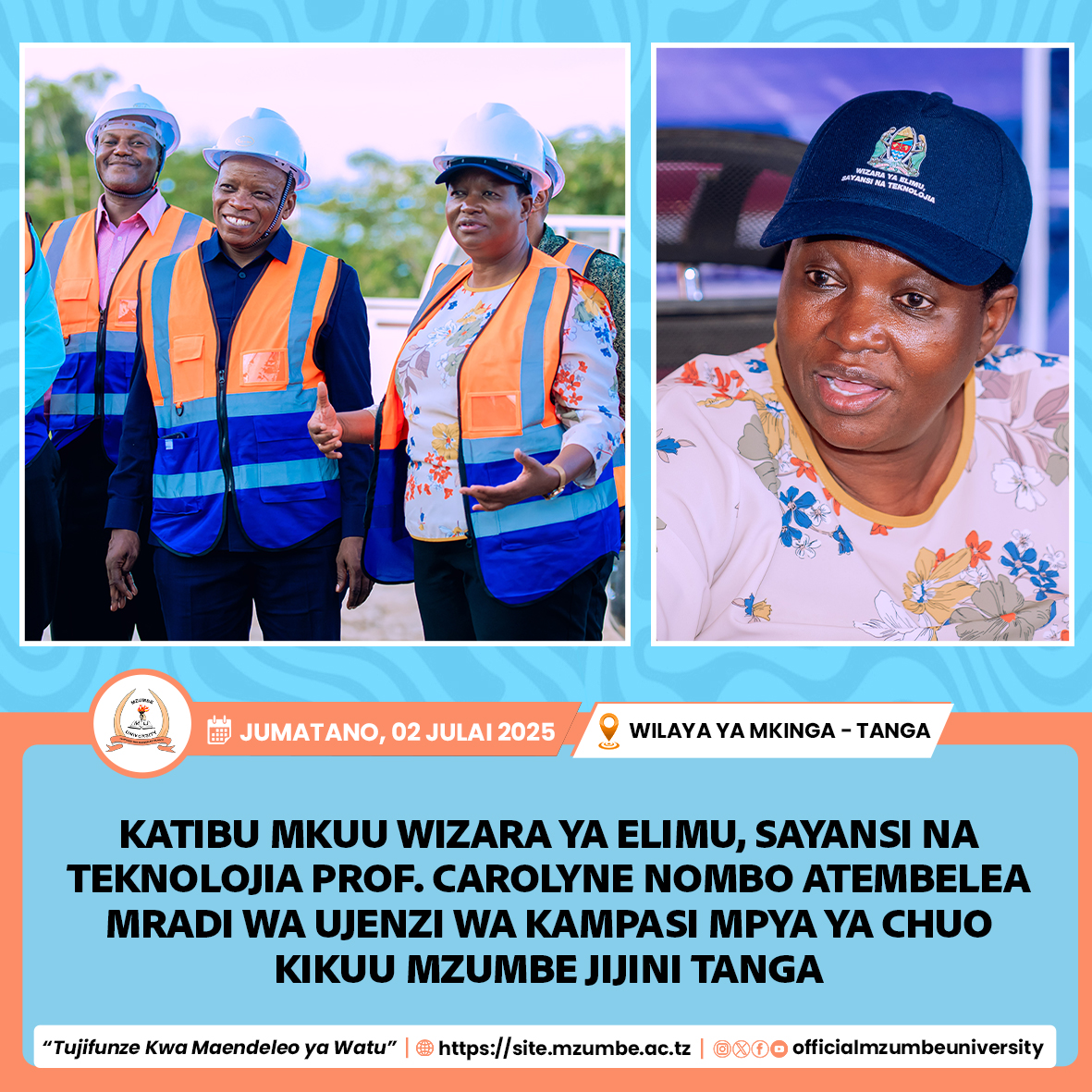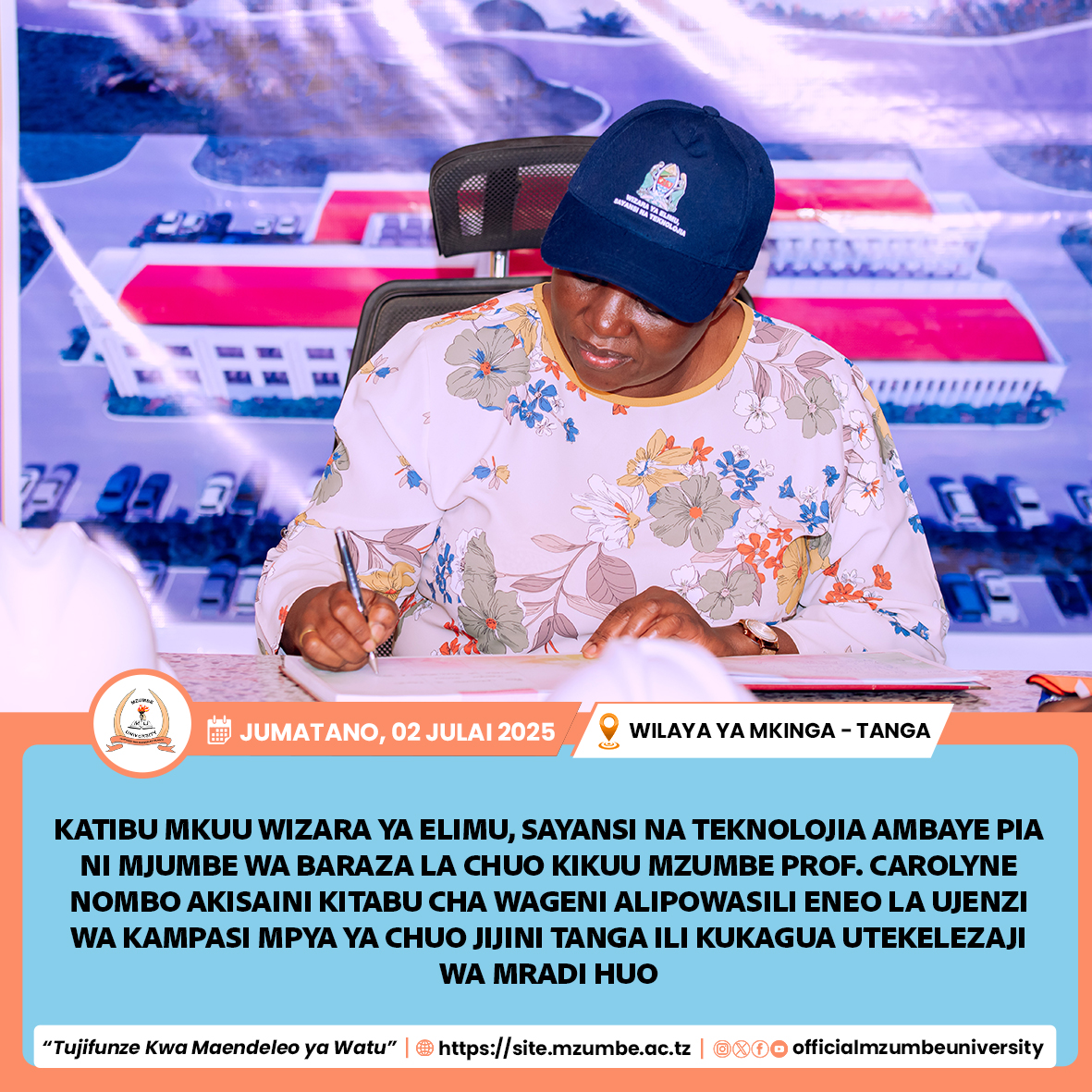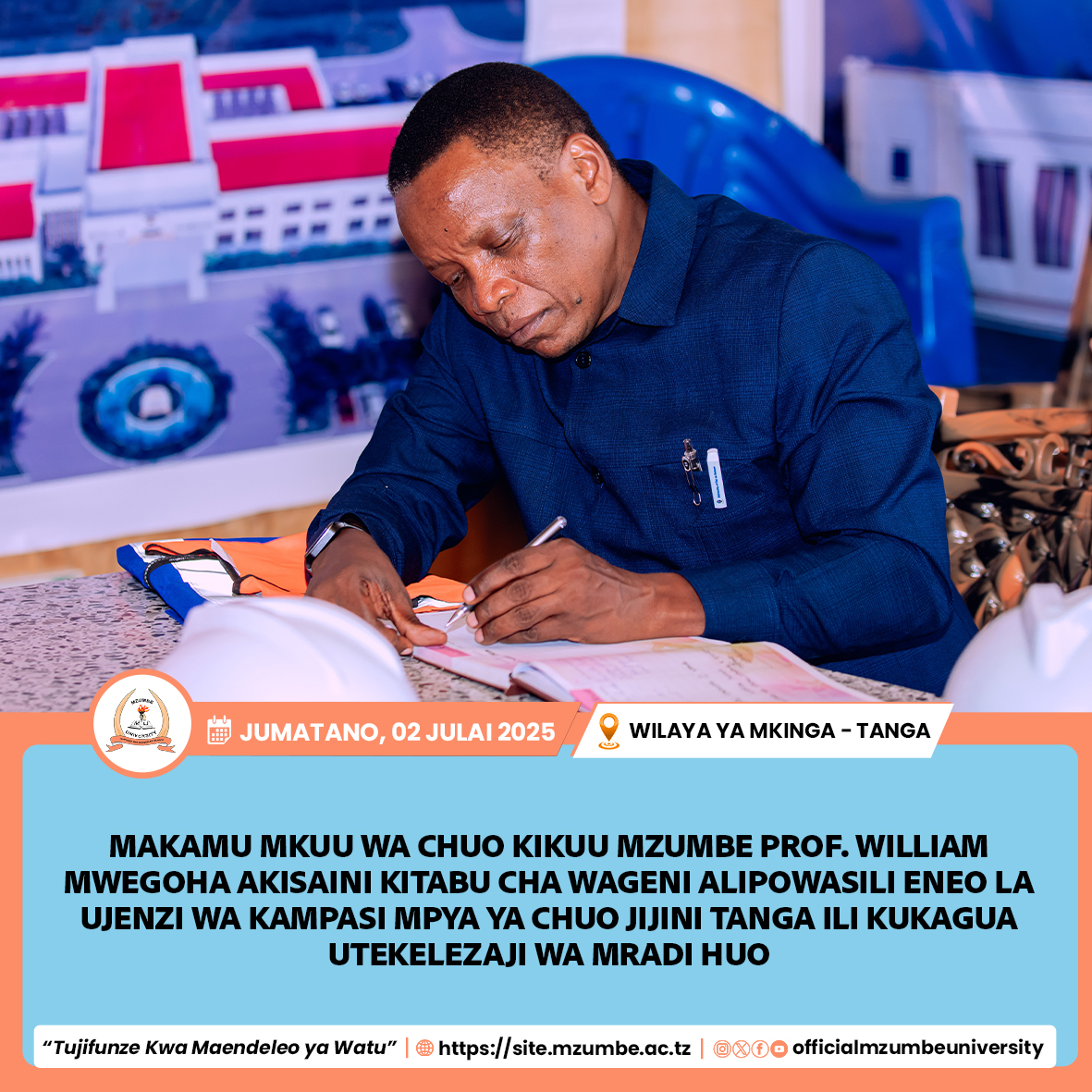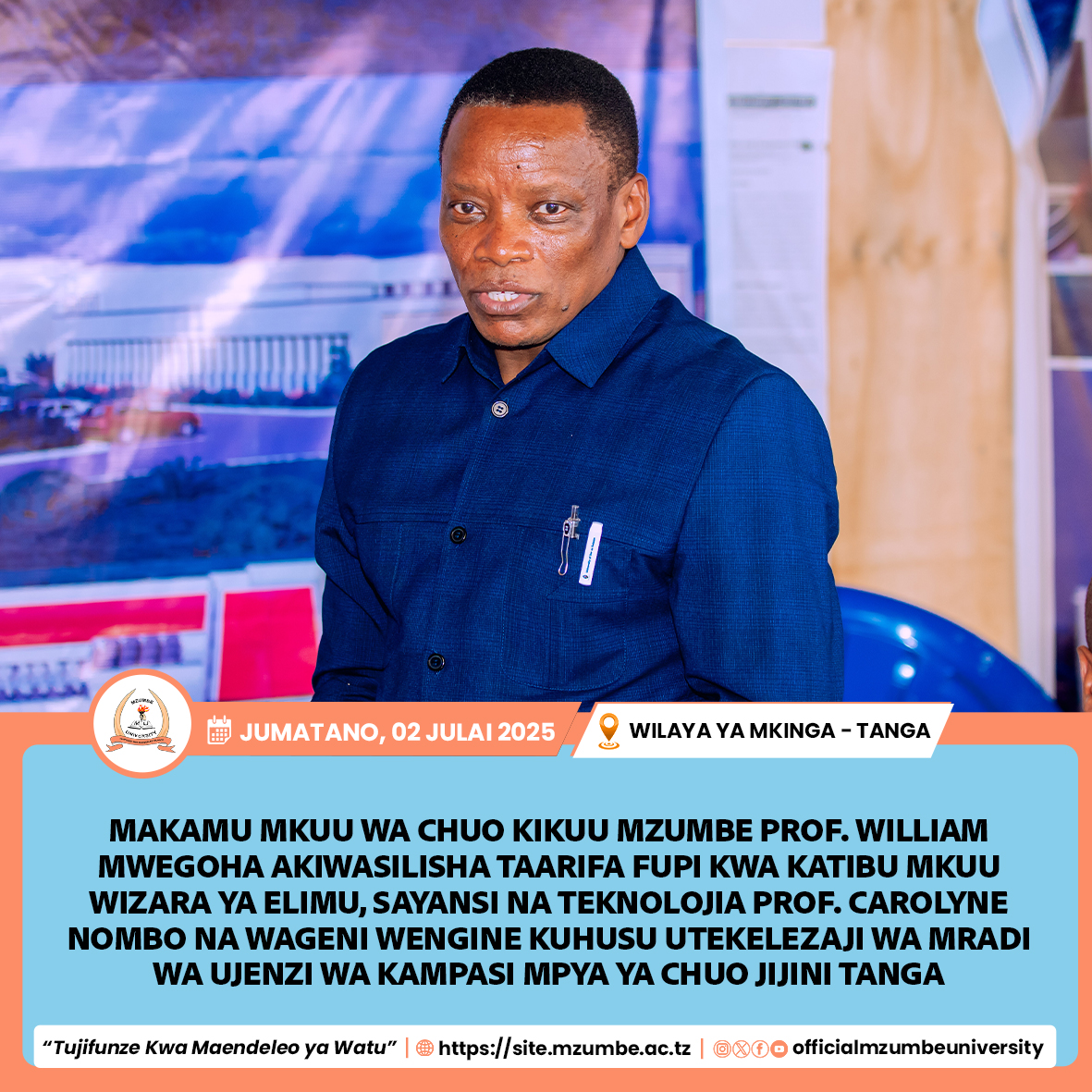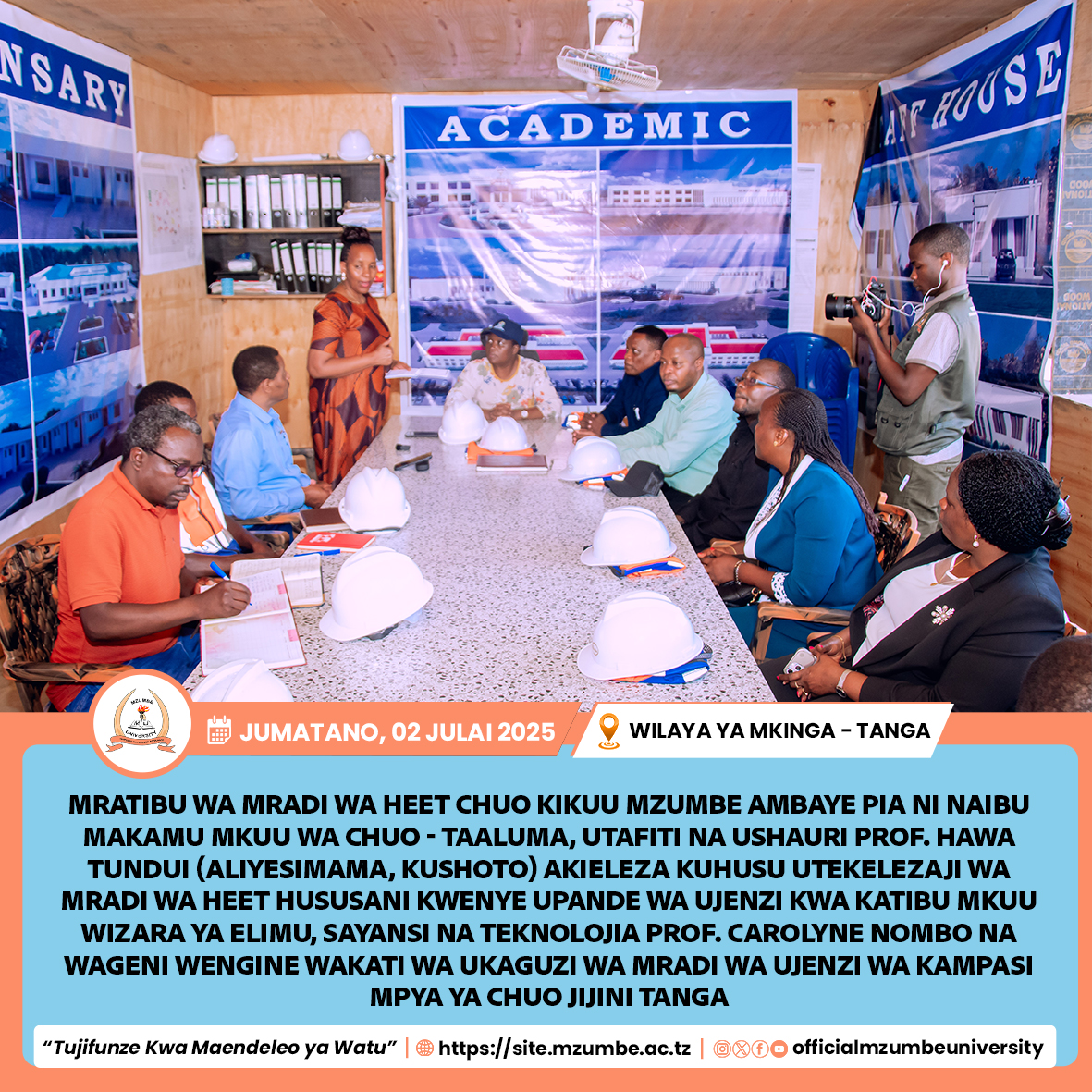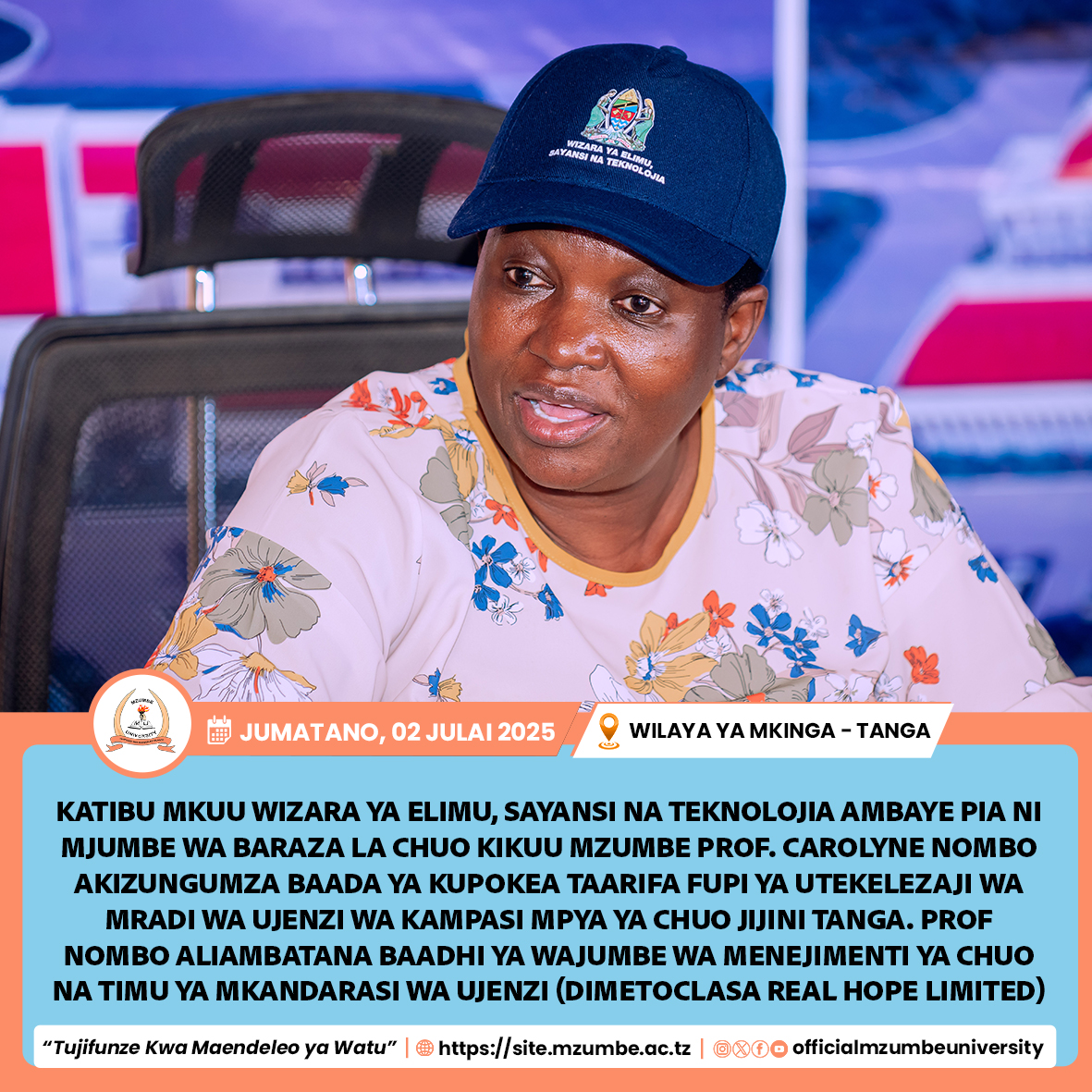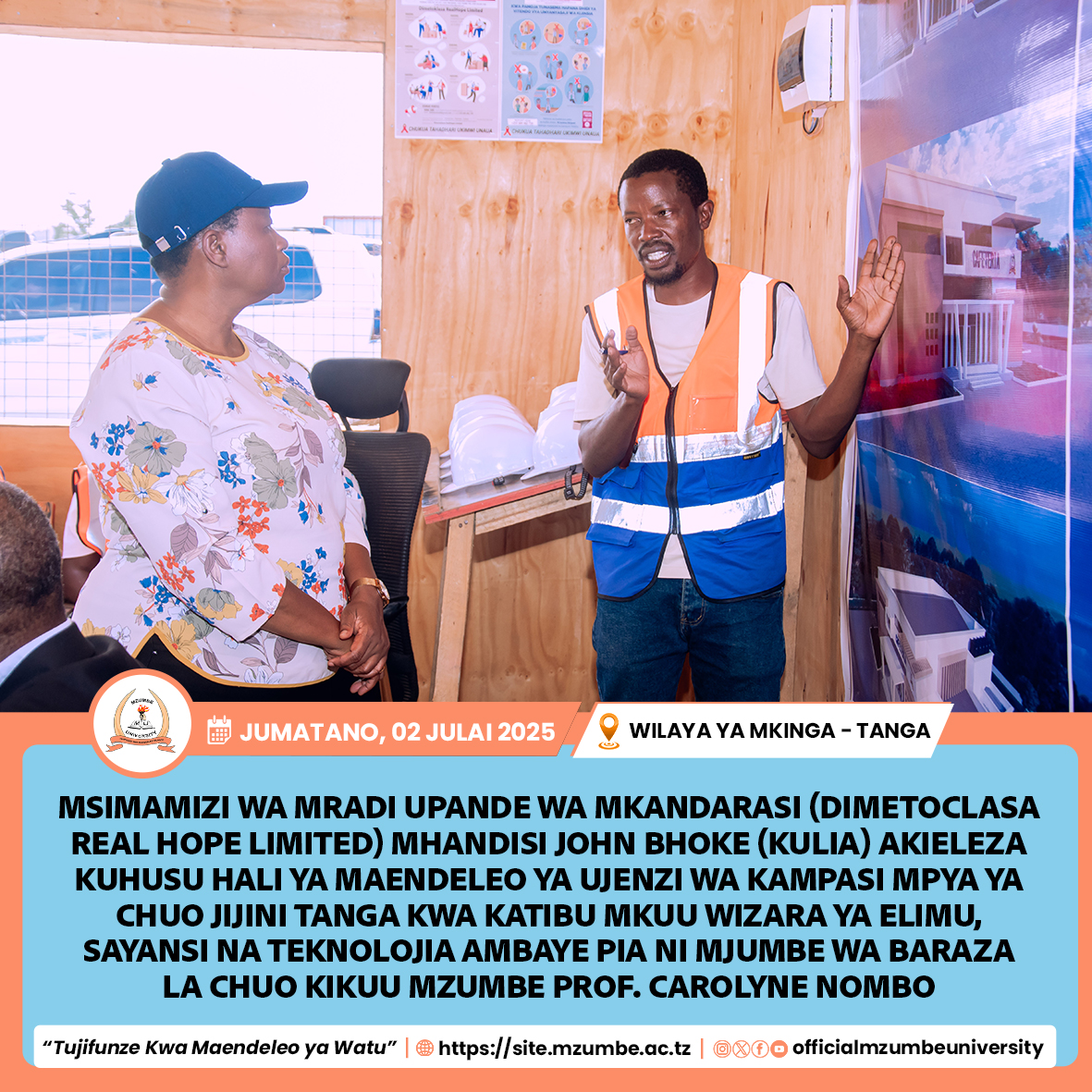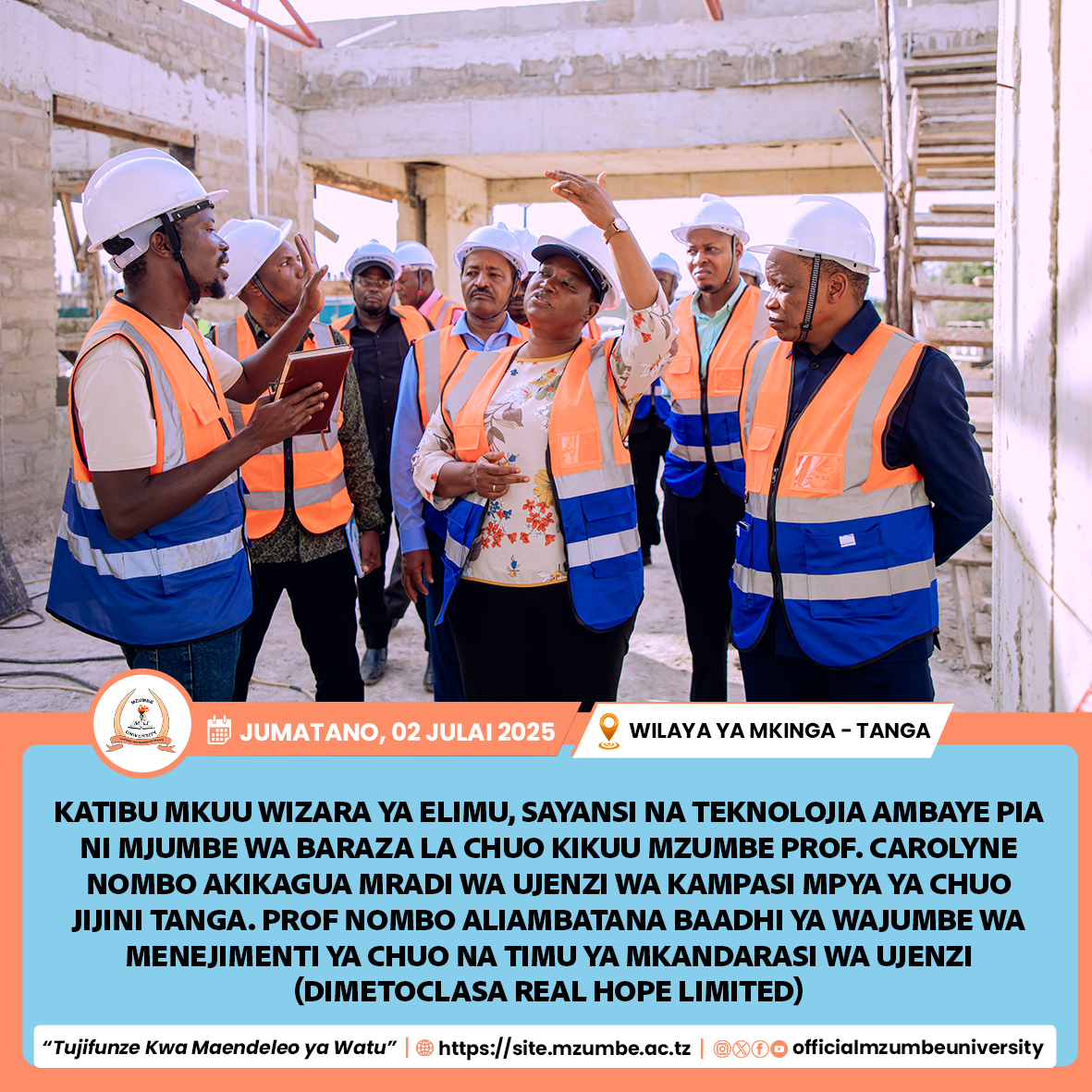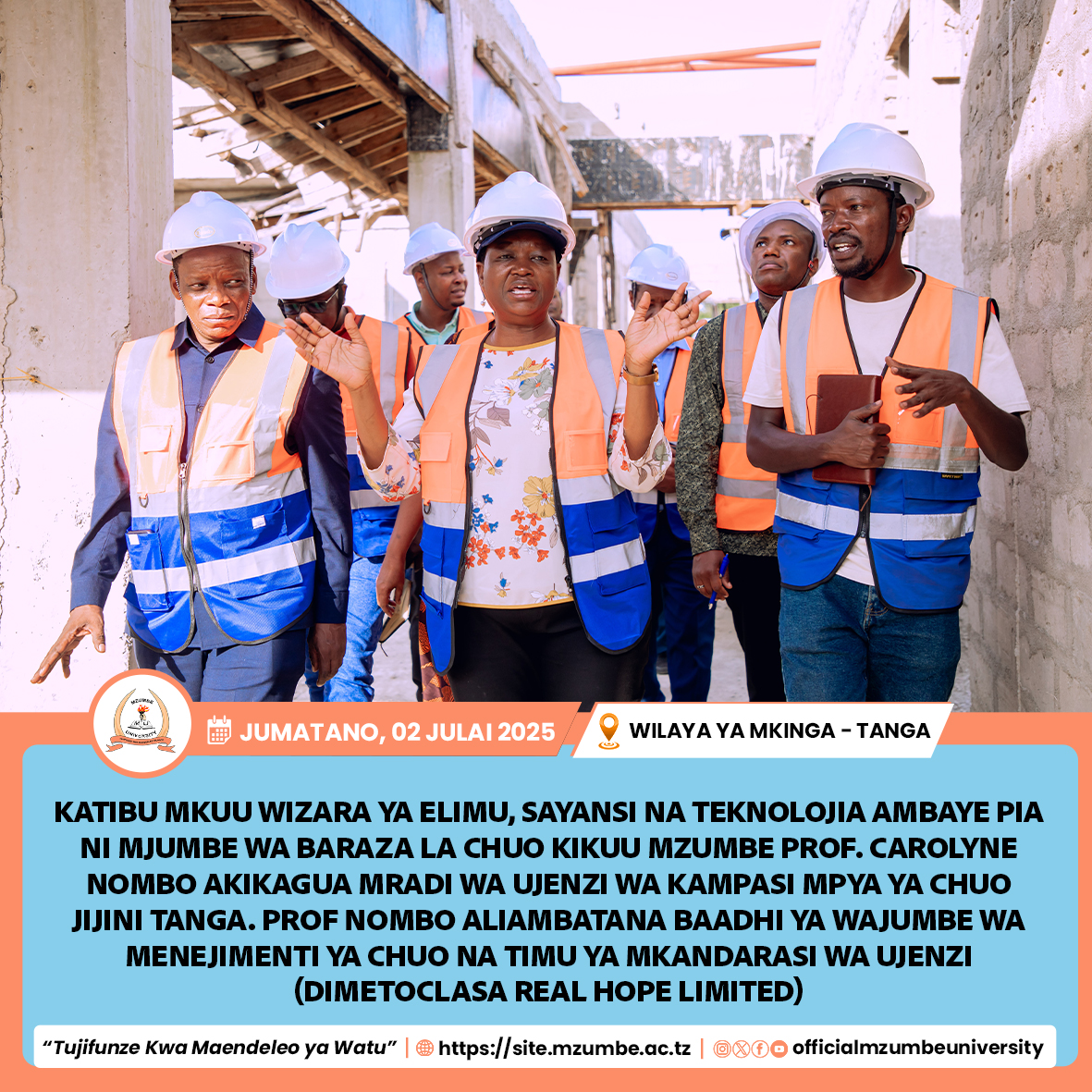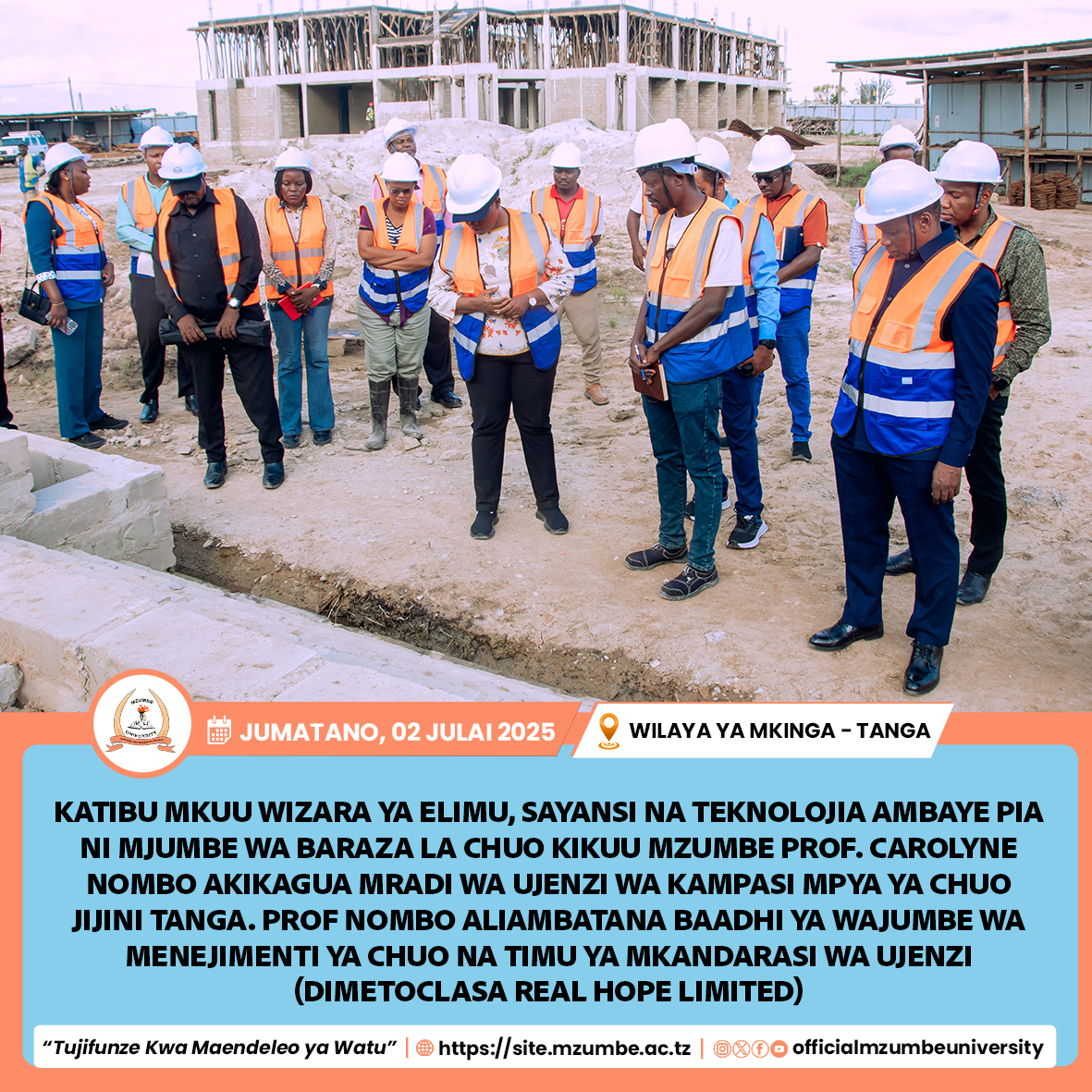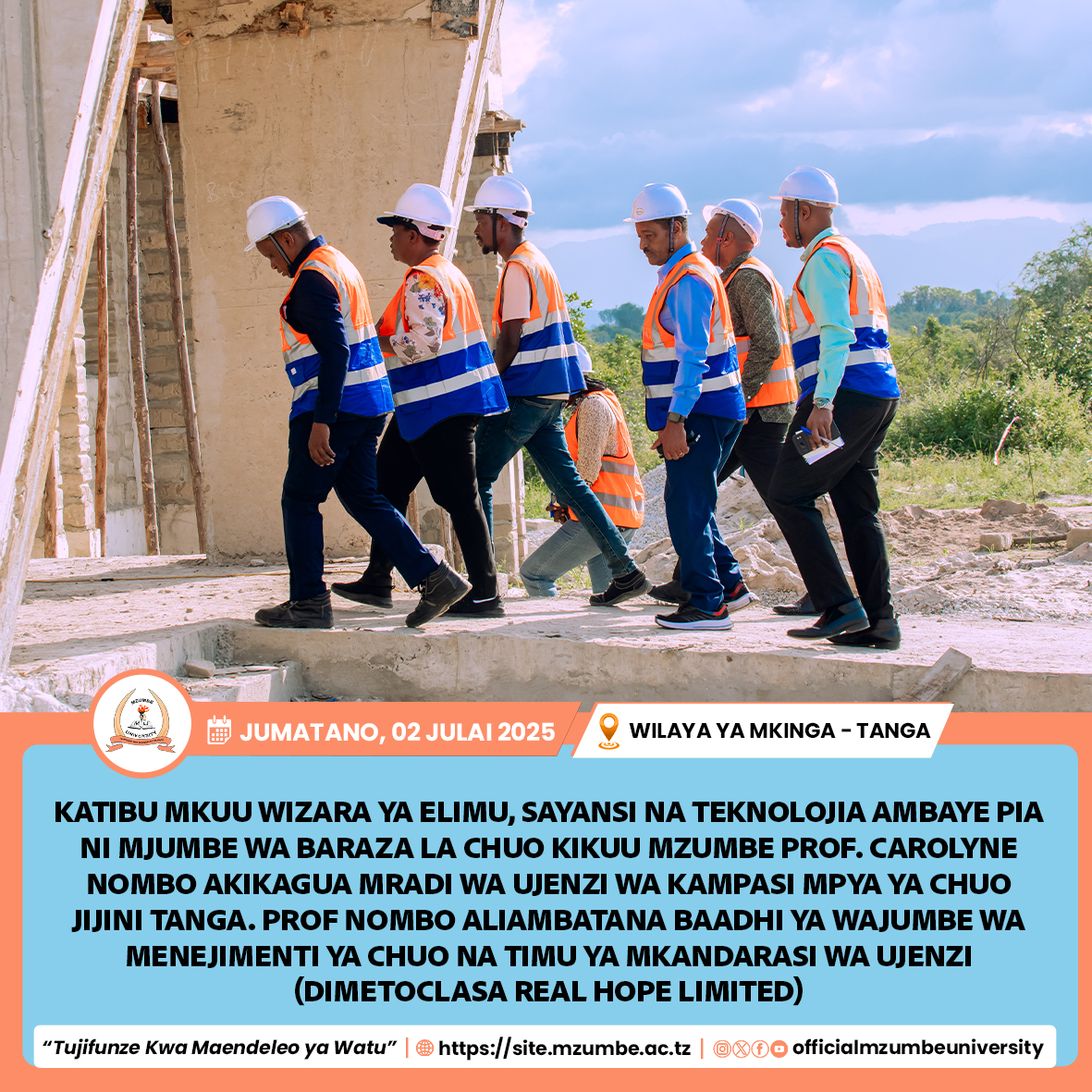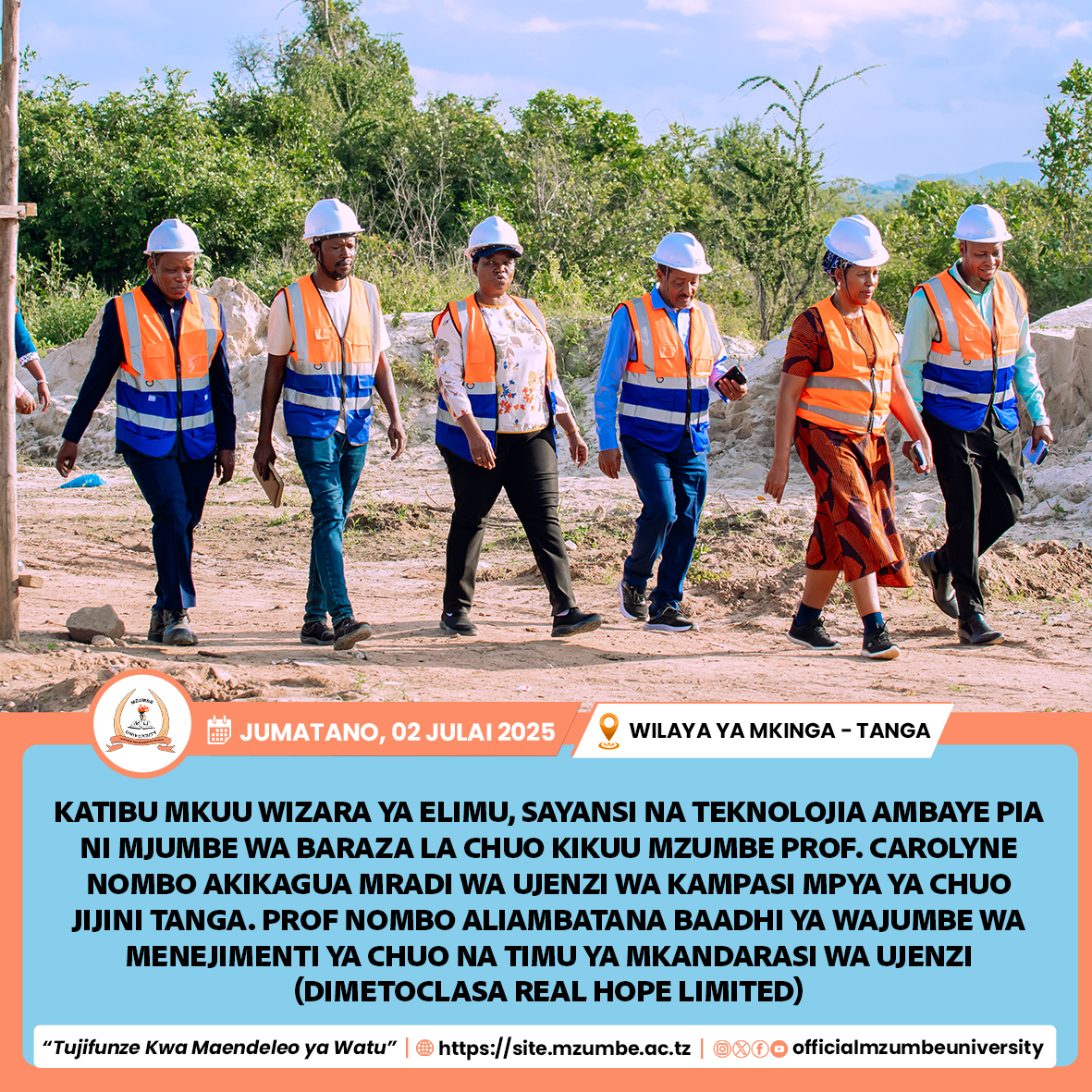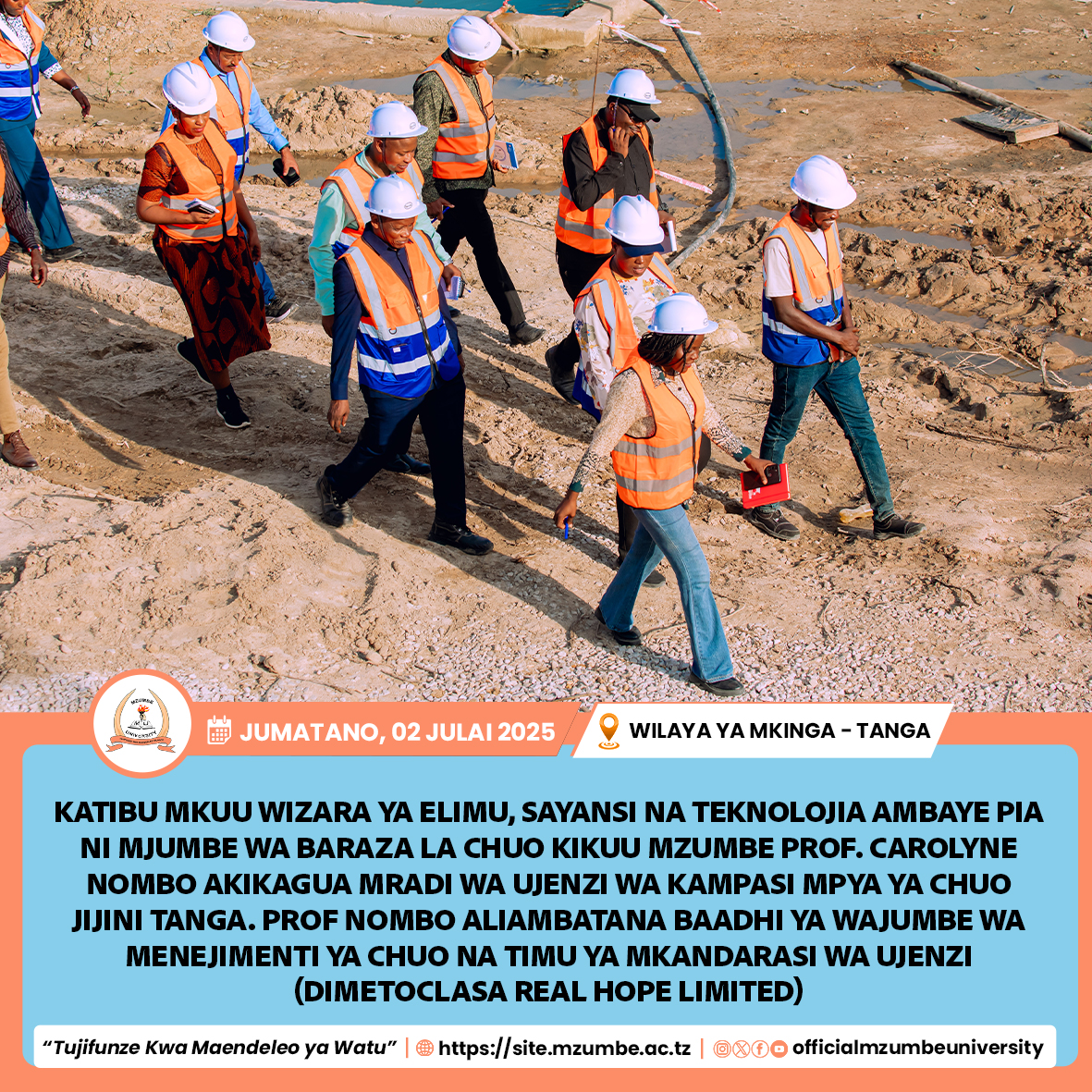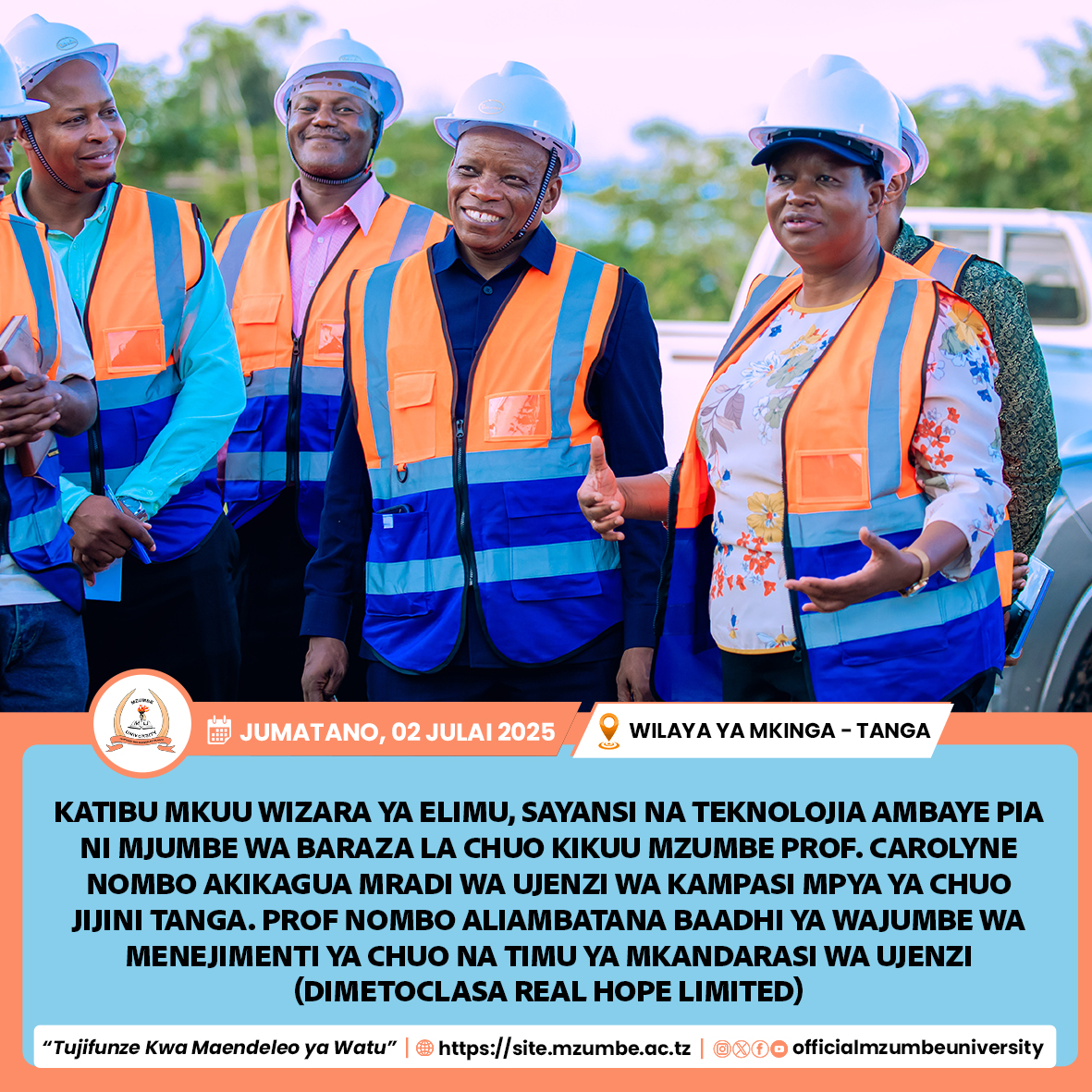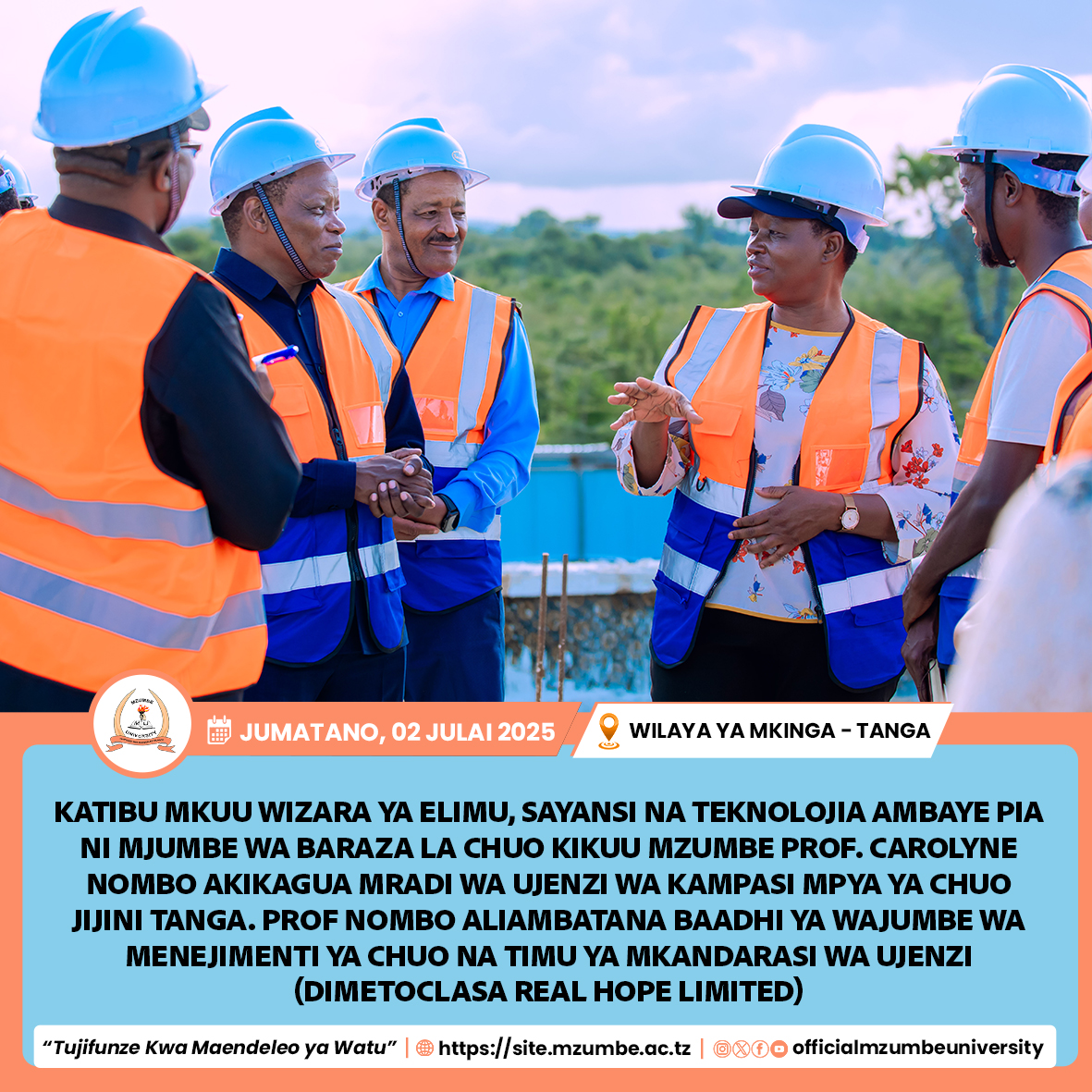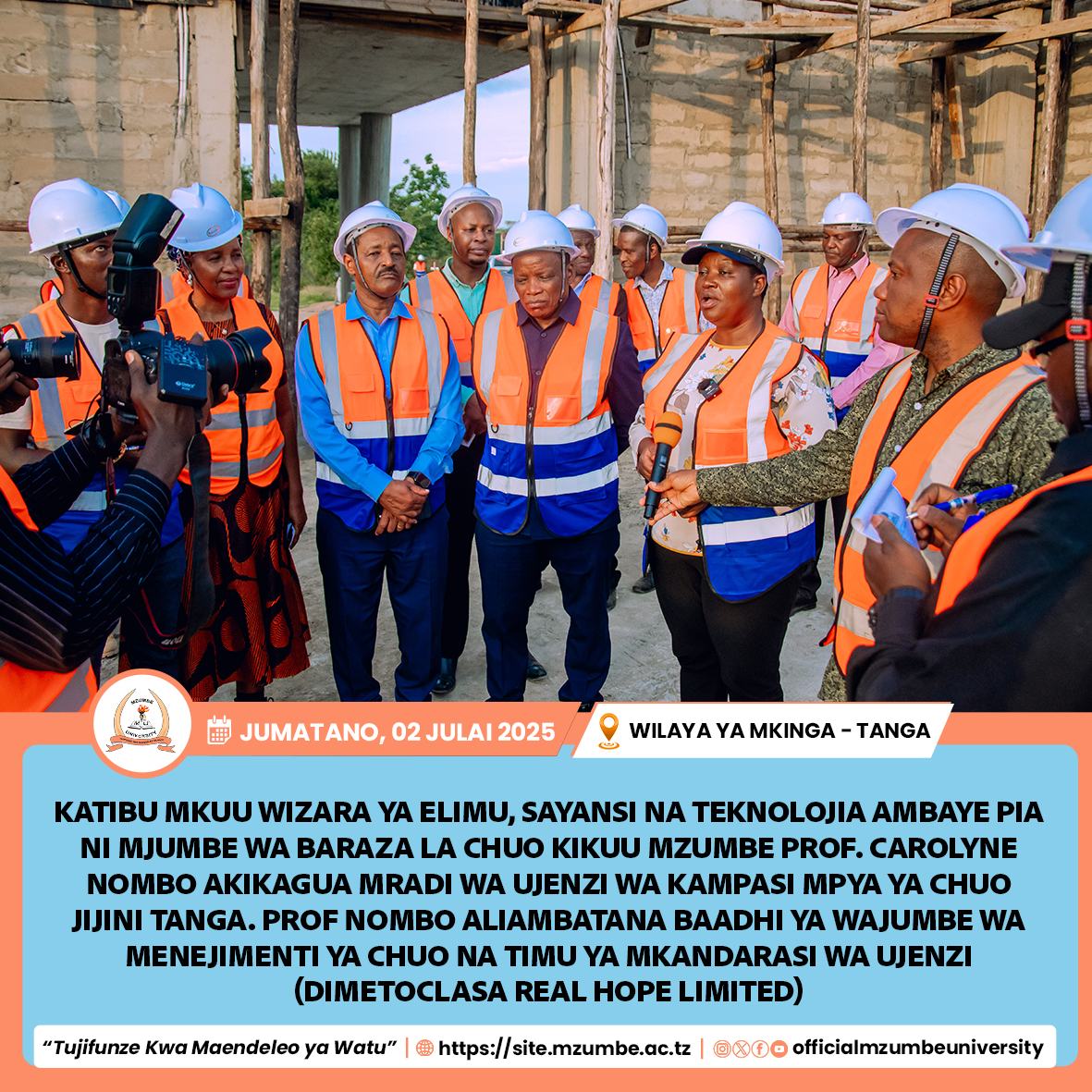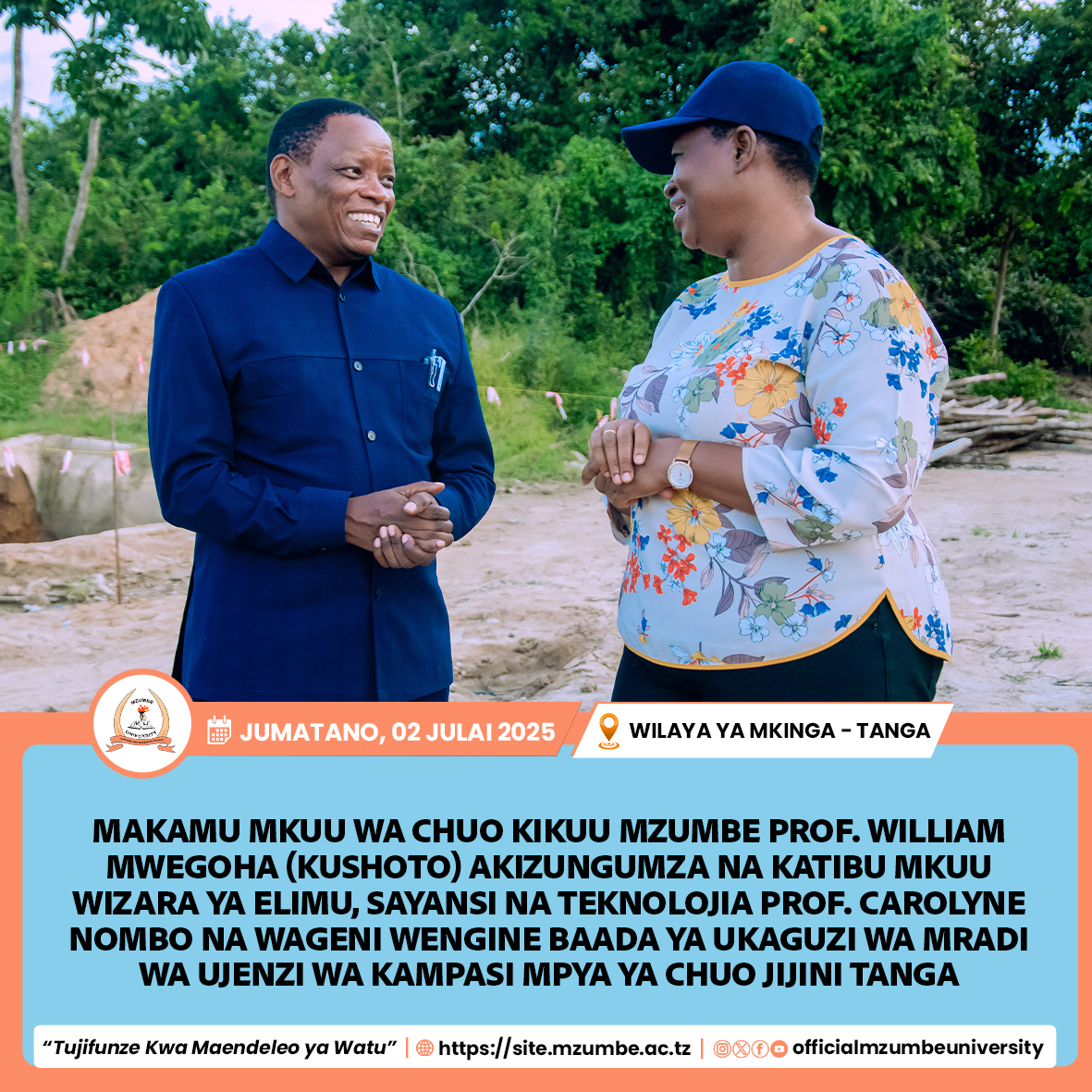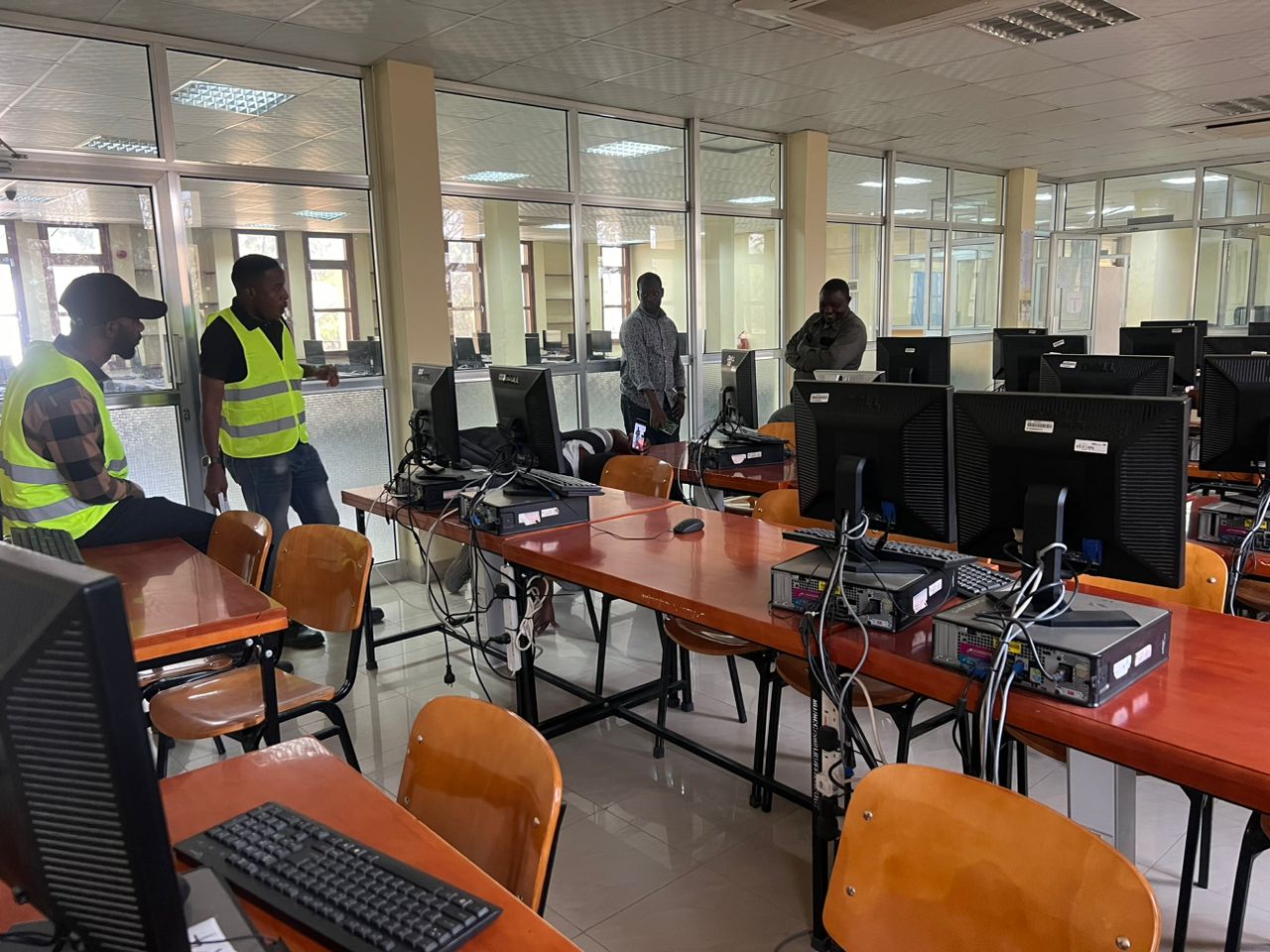Higher Education for Economic Transformation (HEET) Project
About The HEET Project
The Higher Education for Economic Transformation (HEET) project is a five-year initiative funded by the World Bank and implemented in the United Republic of Tanzania through the Ministry of Education, Science and Technology. Its primary objective is to strengthen the learning environments and labour-market alignment of priority programs at the beneficiary institutions and improve the management of the higher education systems. Mzumbe University has been allocated USD 17,101,326.11 for the construction of physical infrastructure and USD 3,898,673.89 for activities related to curriculum improvement and innovative teaching methodologies.
Project Focus Areas
Project Implementation Activities:
CONSTRUCTION OF MZUMBE UNIVERSITY TANGA CAMPUS
The proposed project initiative was driven by the need to accommodate the increasing demand on existing infrastructure, hence establish a new Campus in Mkinga District, Tanga Region. The new establishment will consist of an Academic Block, two (2) Students’ Hostels, Cafeteria, Dispensary, four (4) Staff Houses and Reservoir Tank. Currently, MU has three campuses; Main Campus in Morogoro, Dar es Salaam Campus College and Mbeya Campus College with an estimate of 15,000 students. Therefore, the proposed project will absorb the growing number of graduates from basic education who are both inspired and capable of pursuing higher education in Tanzania
TO IMPROVE COMPUTER LAB FOR PRACTICAL SESSION
The project involved improving computer Labs at all Three Campuses,Main Campus Morogoro, Mbeya and Dar es Salaam Campuses, Computer labs with working Computers are functional at all three campuses,It included: Preparation of Specifications for the computers, Prepare procurement plan for the computers, Procure Computers for the labs and Install OSS in the computers
ESTABLISHMENT AND OR UPGRADE STATE-OF-THE ART ICT INFRASTRUCTURE, EQUIPMENT, AND SERVICES
The Project involved:Prepare ToR for the establishment of LAN and WLAN at Maekani, Solicit consultancy to design Maekani master plan , Design LAN Masterplan for the Mahekani ,Deployment of wireless hotspots in all university/students’ premises in 3 campuses and Segmentation of MU traffic



